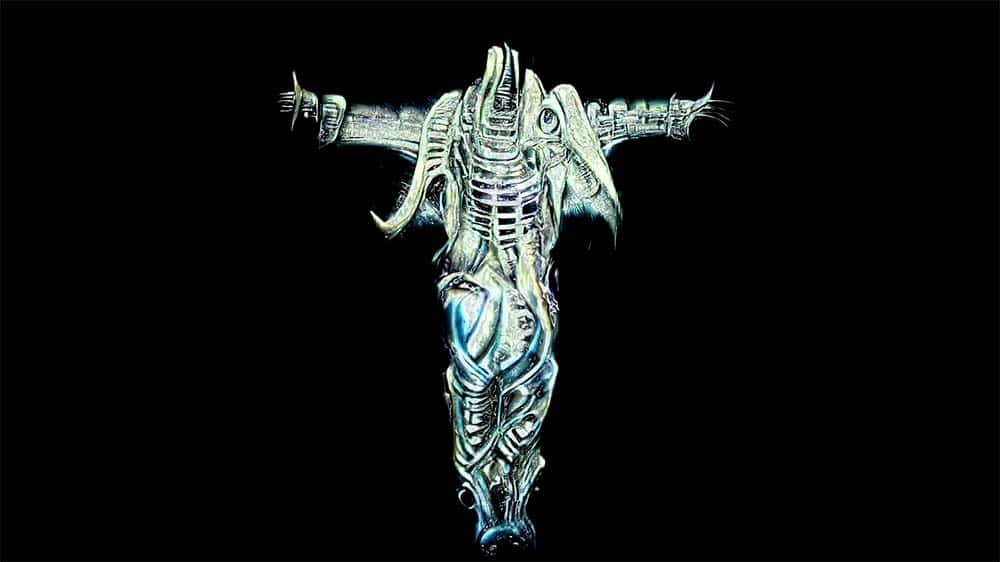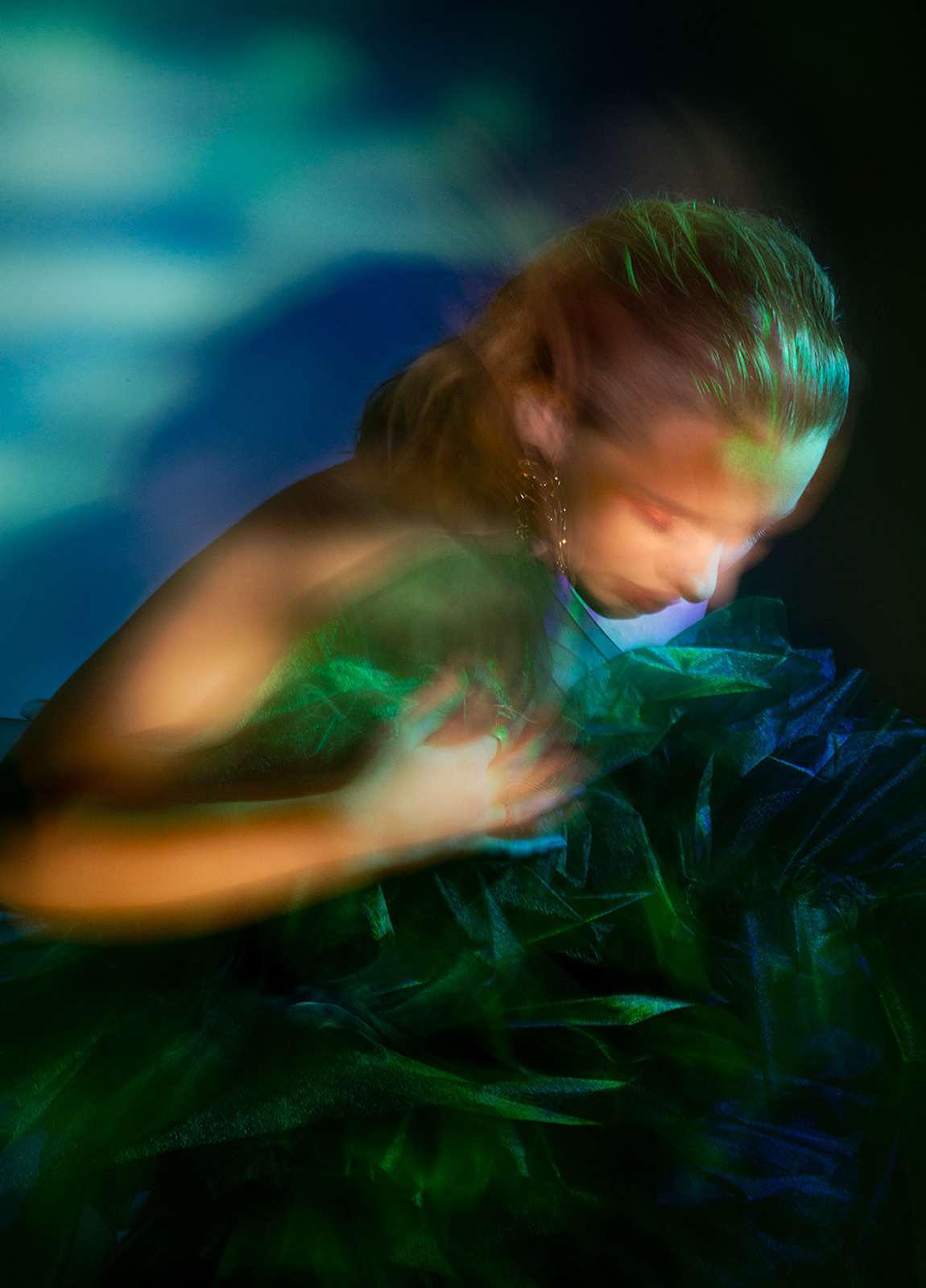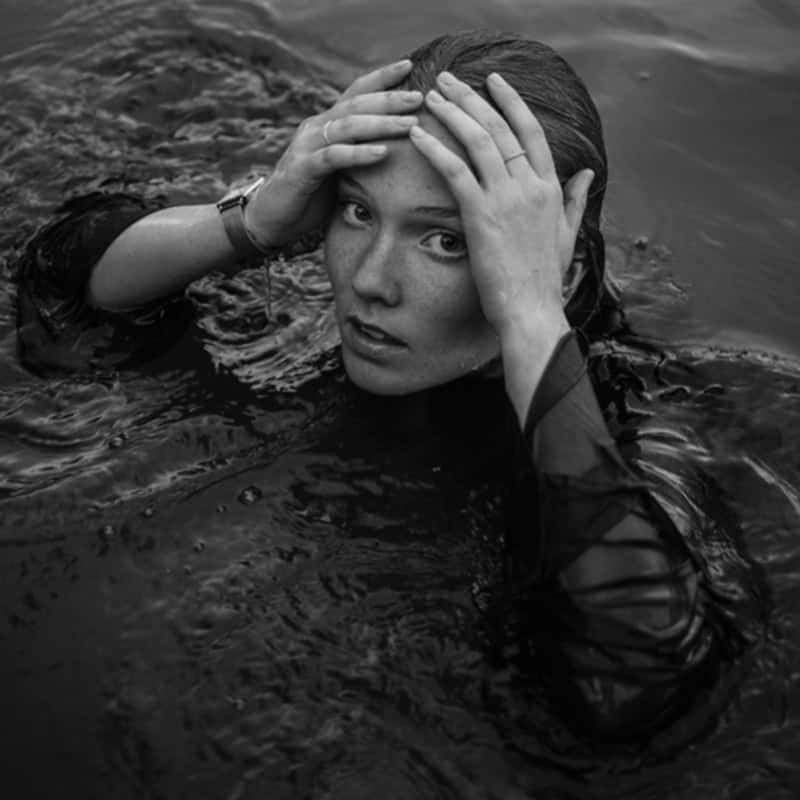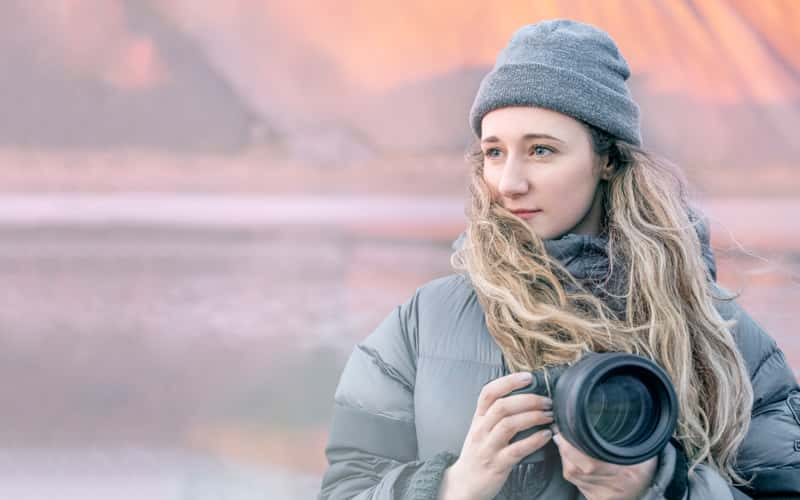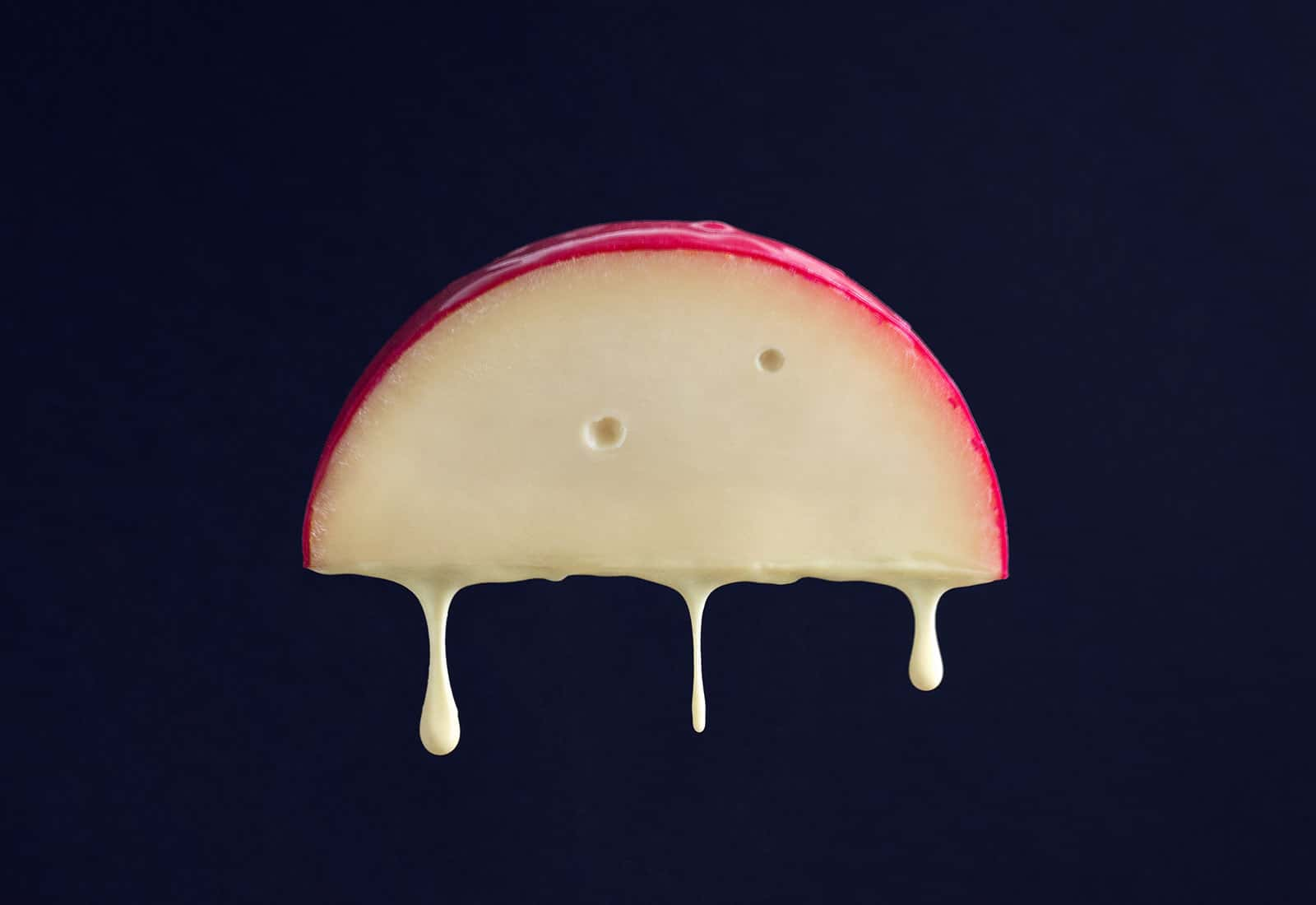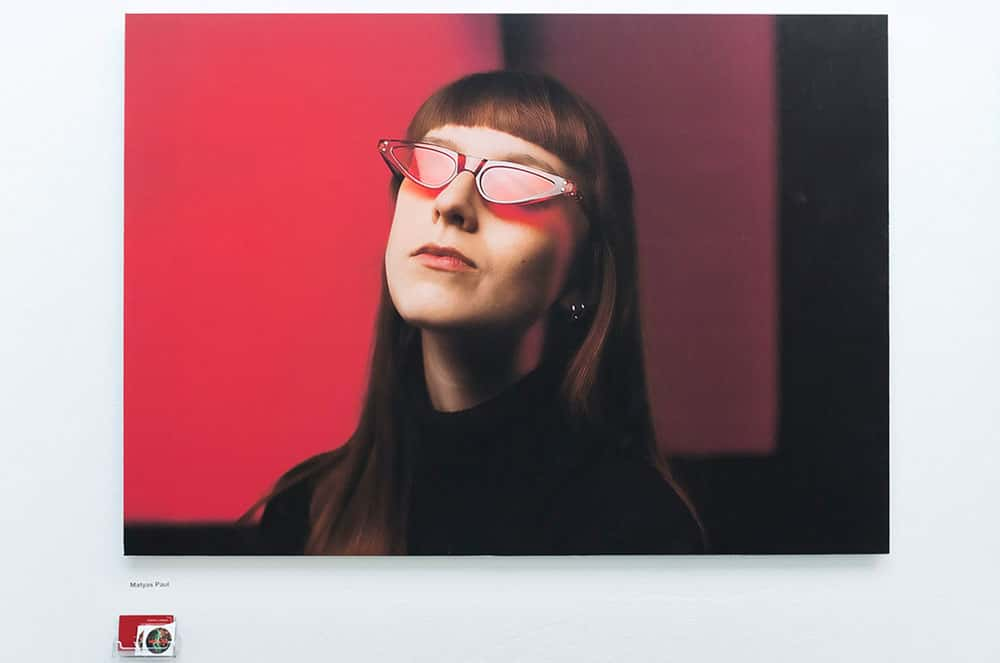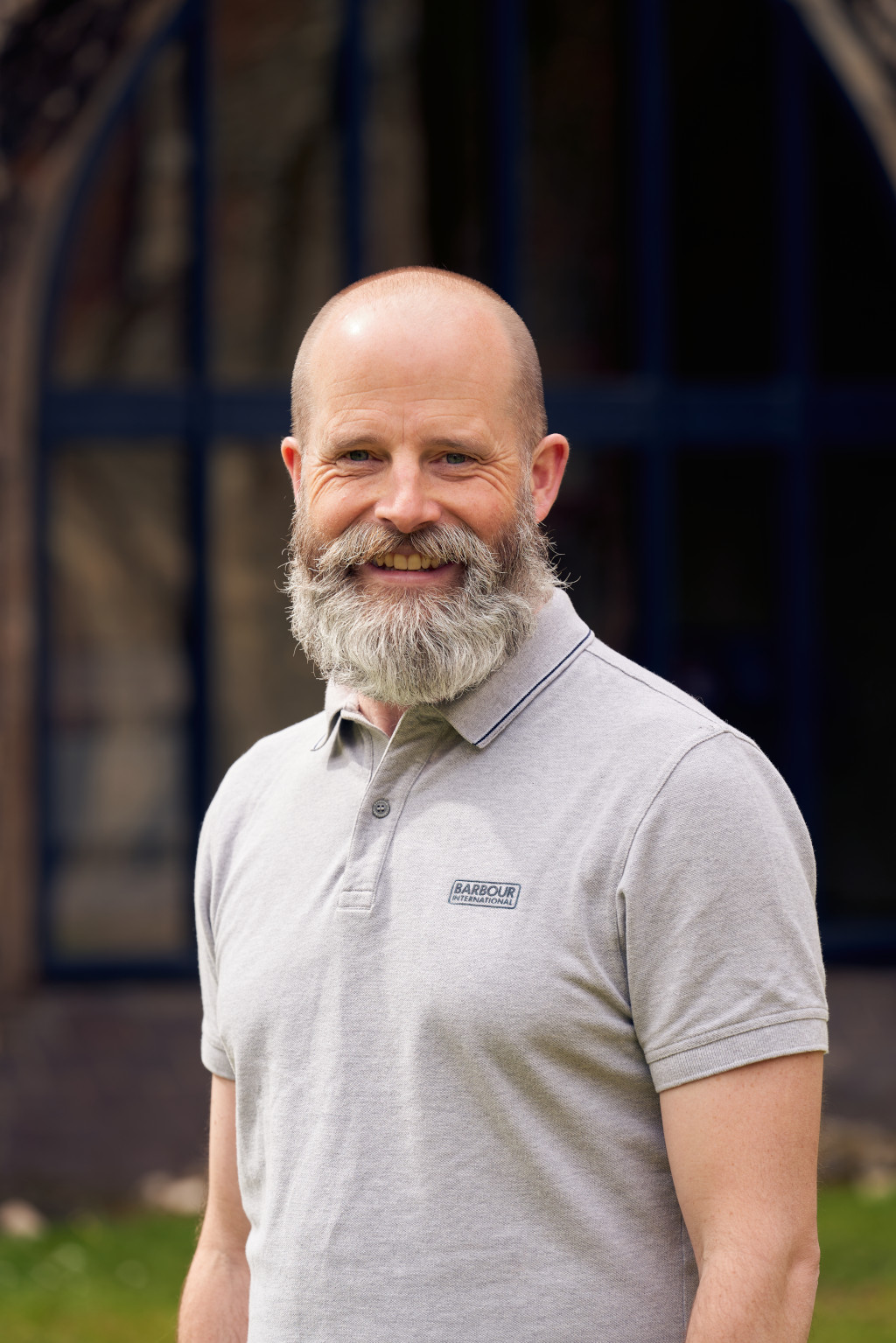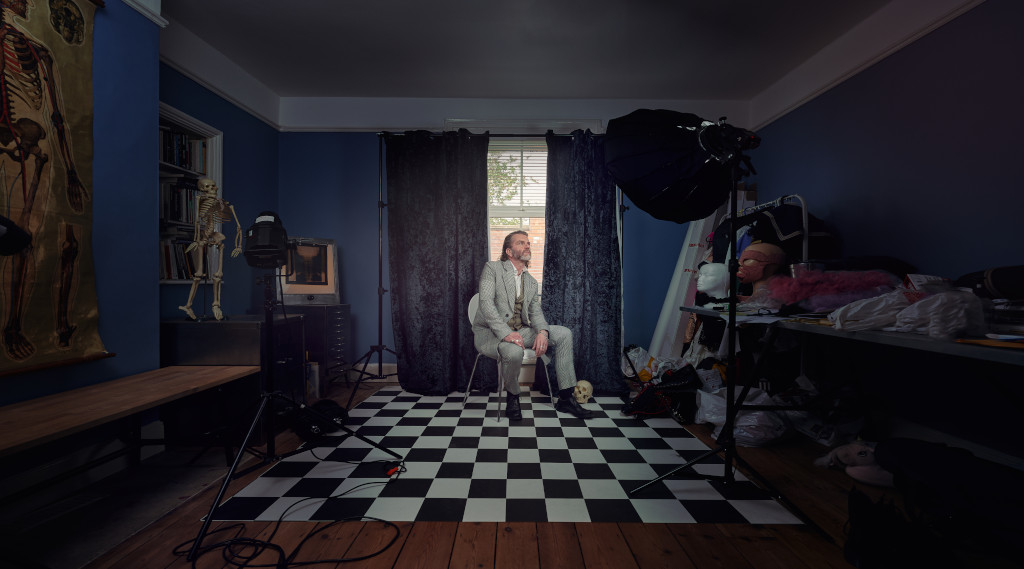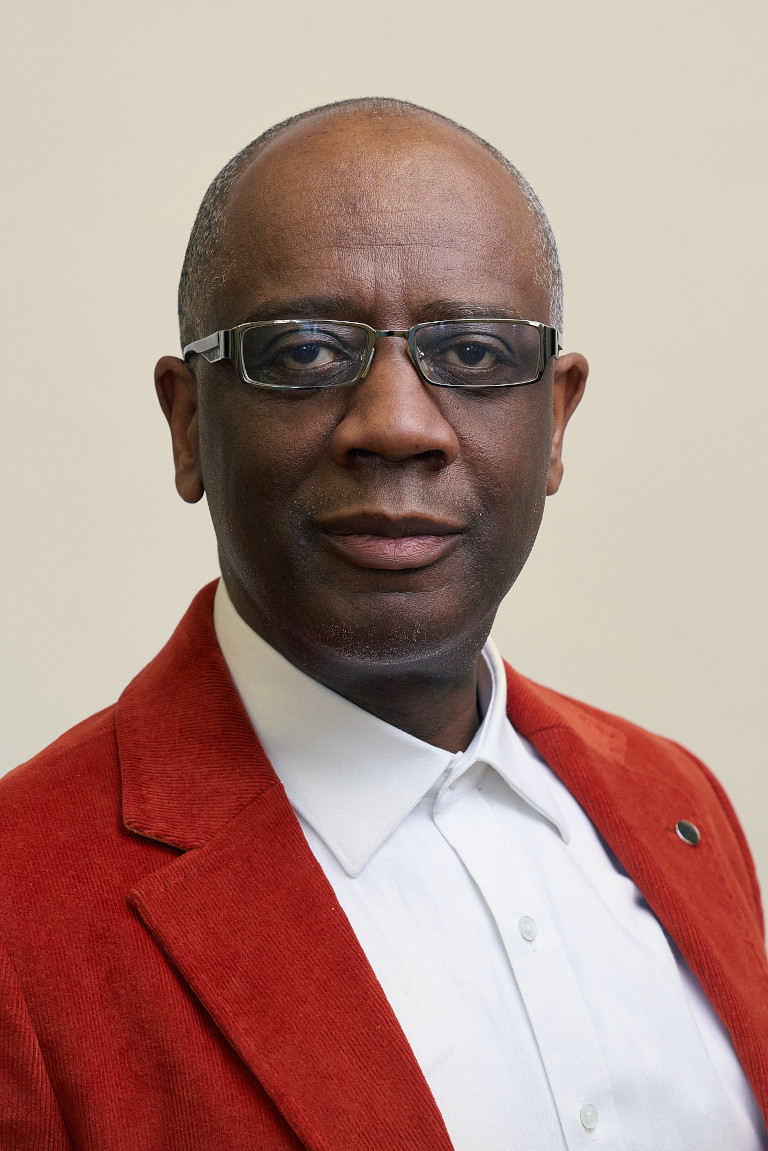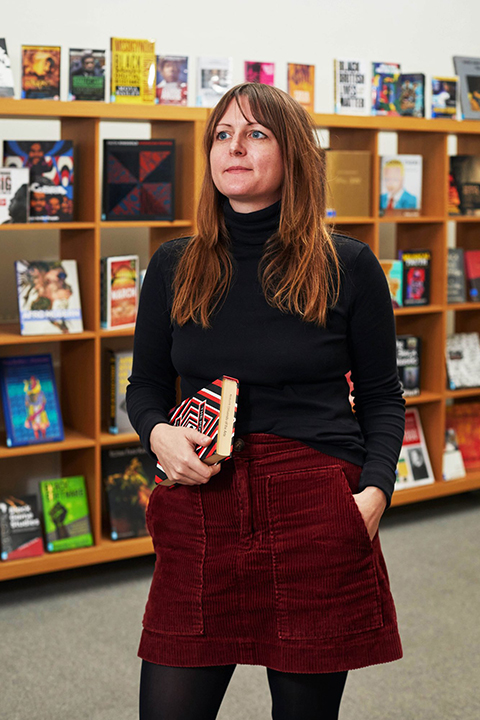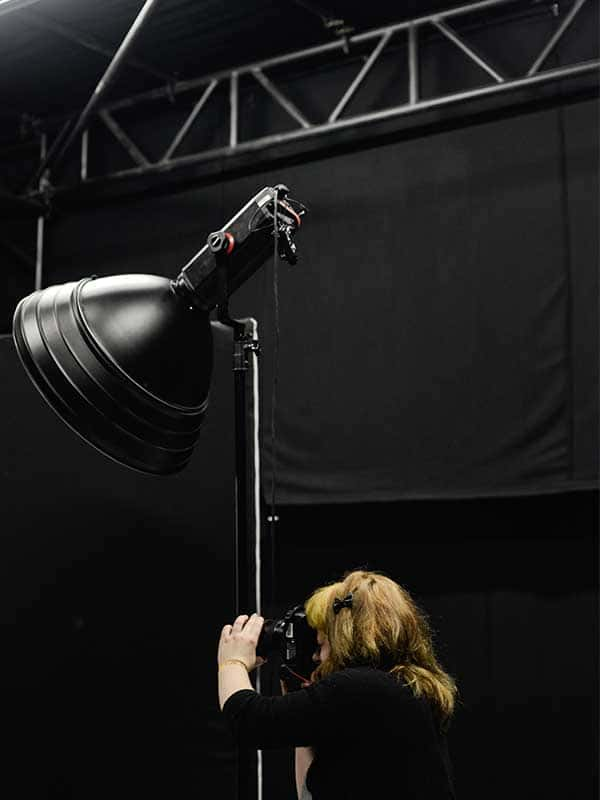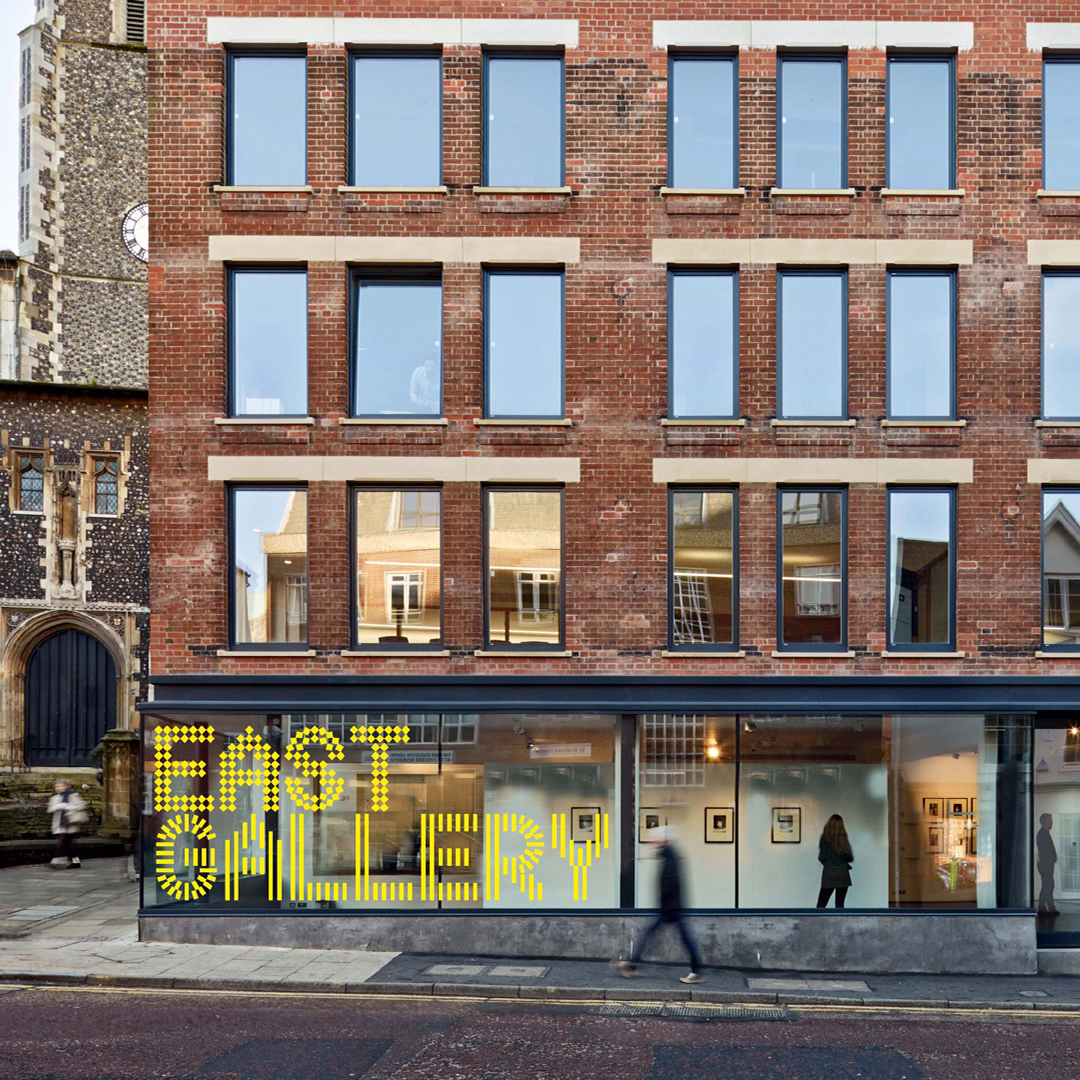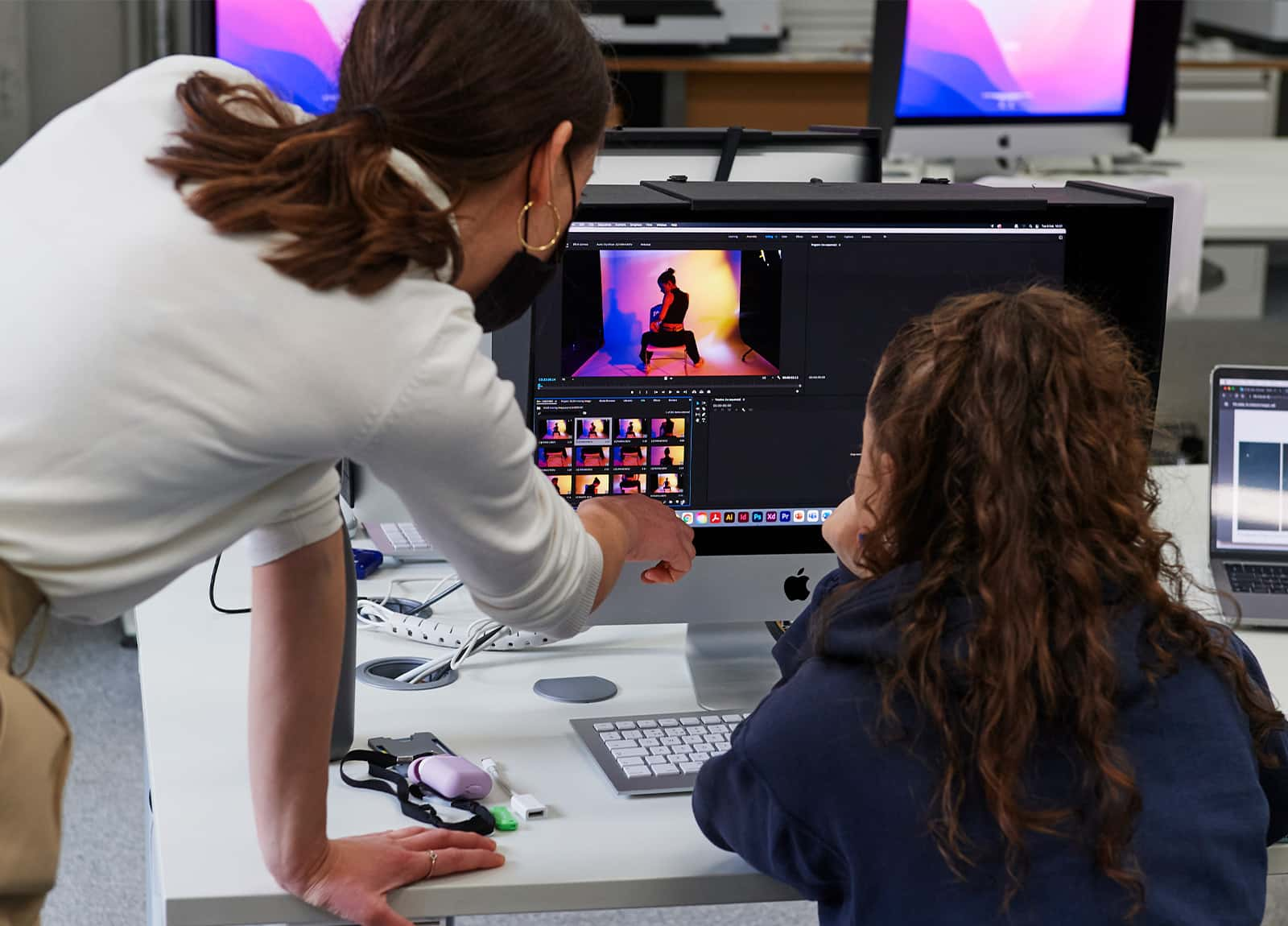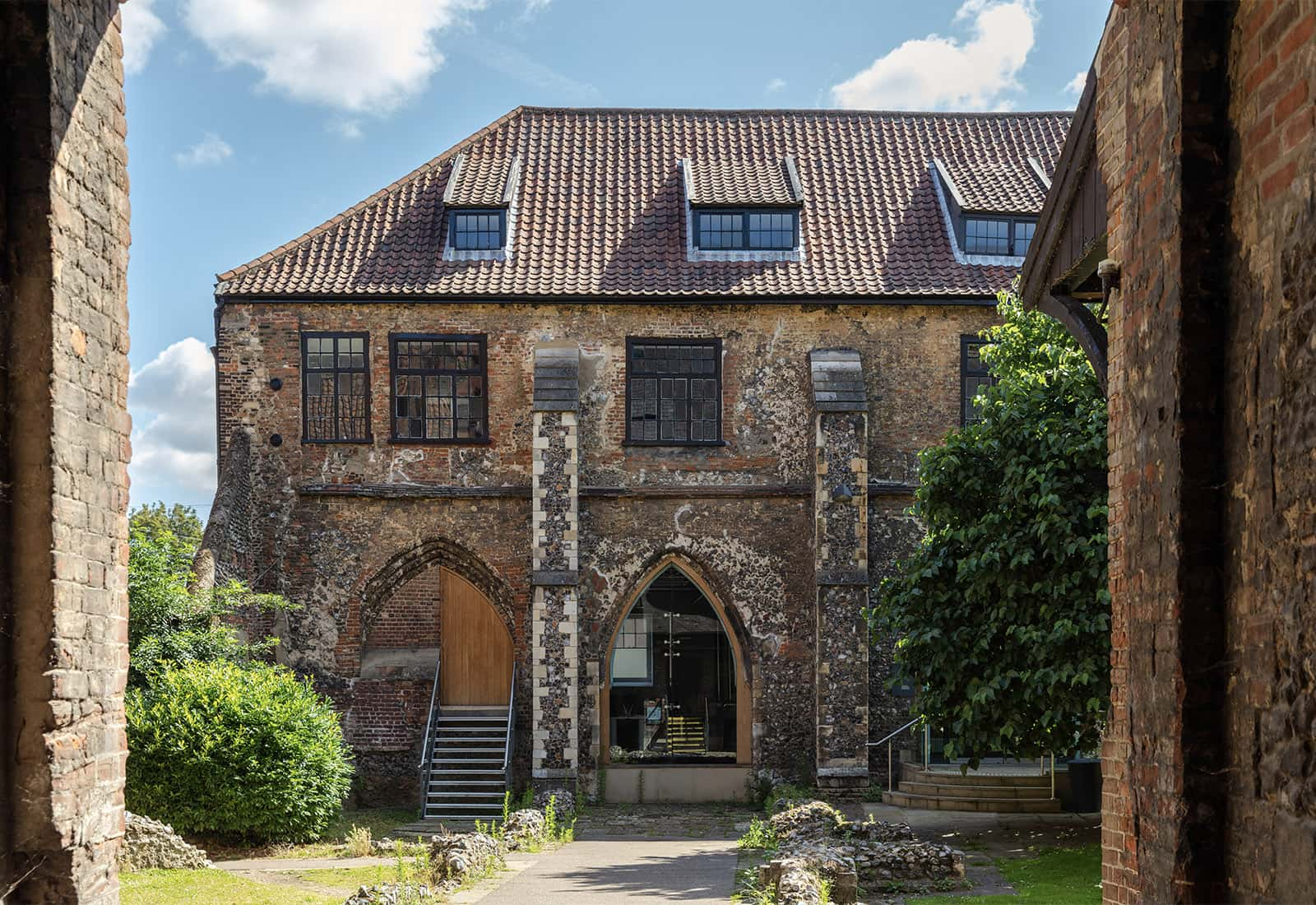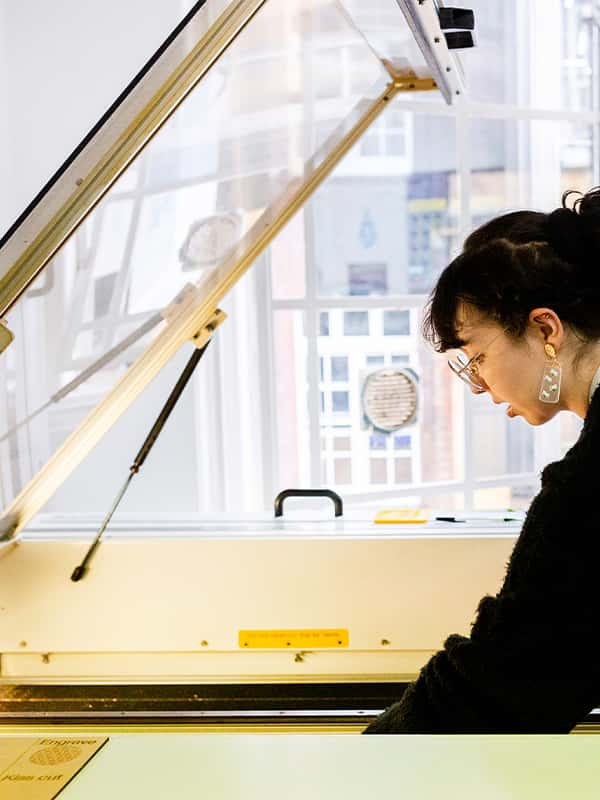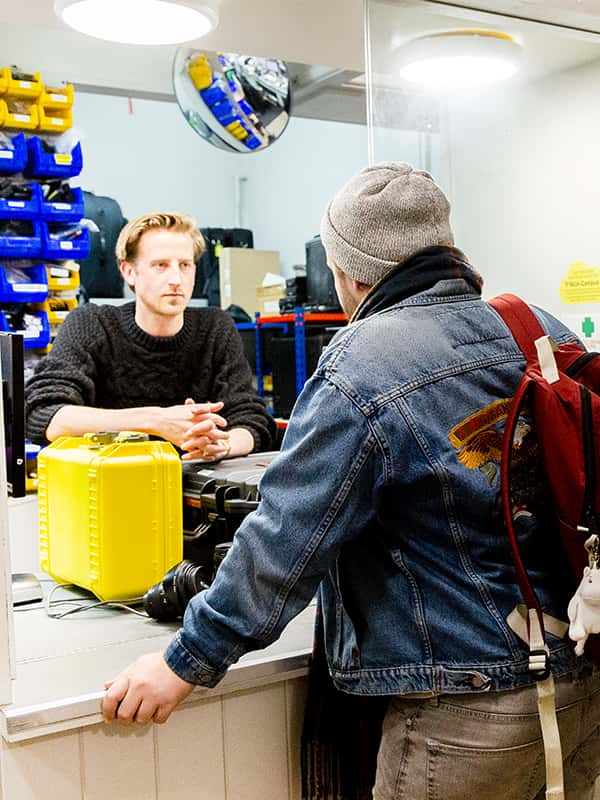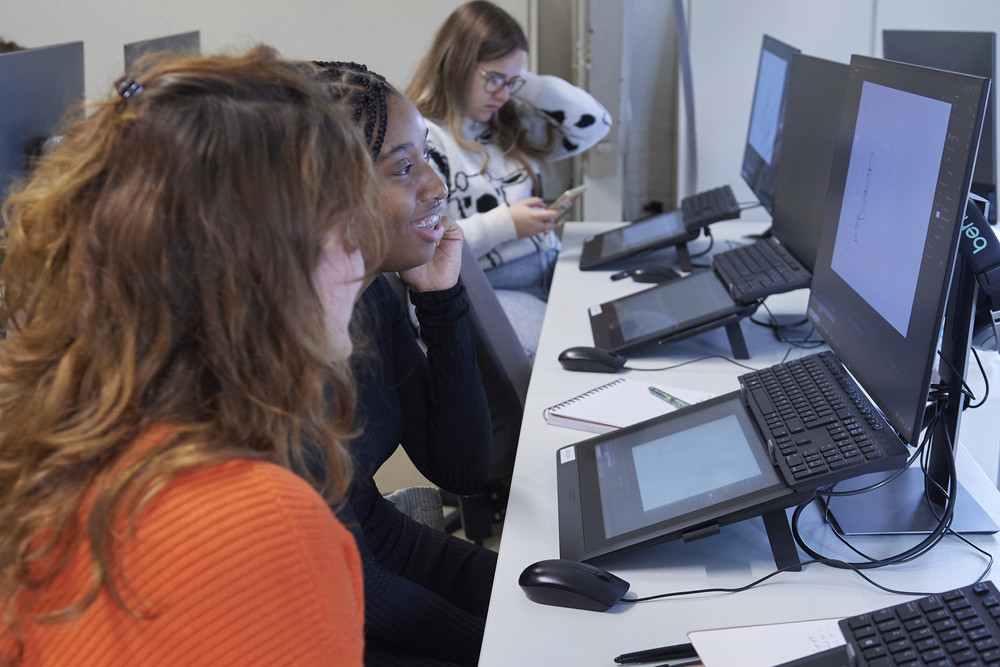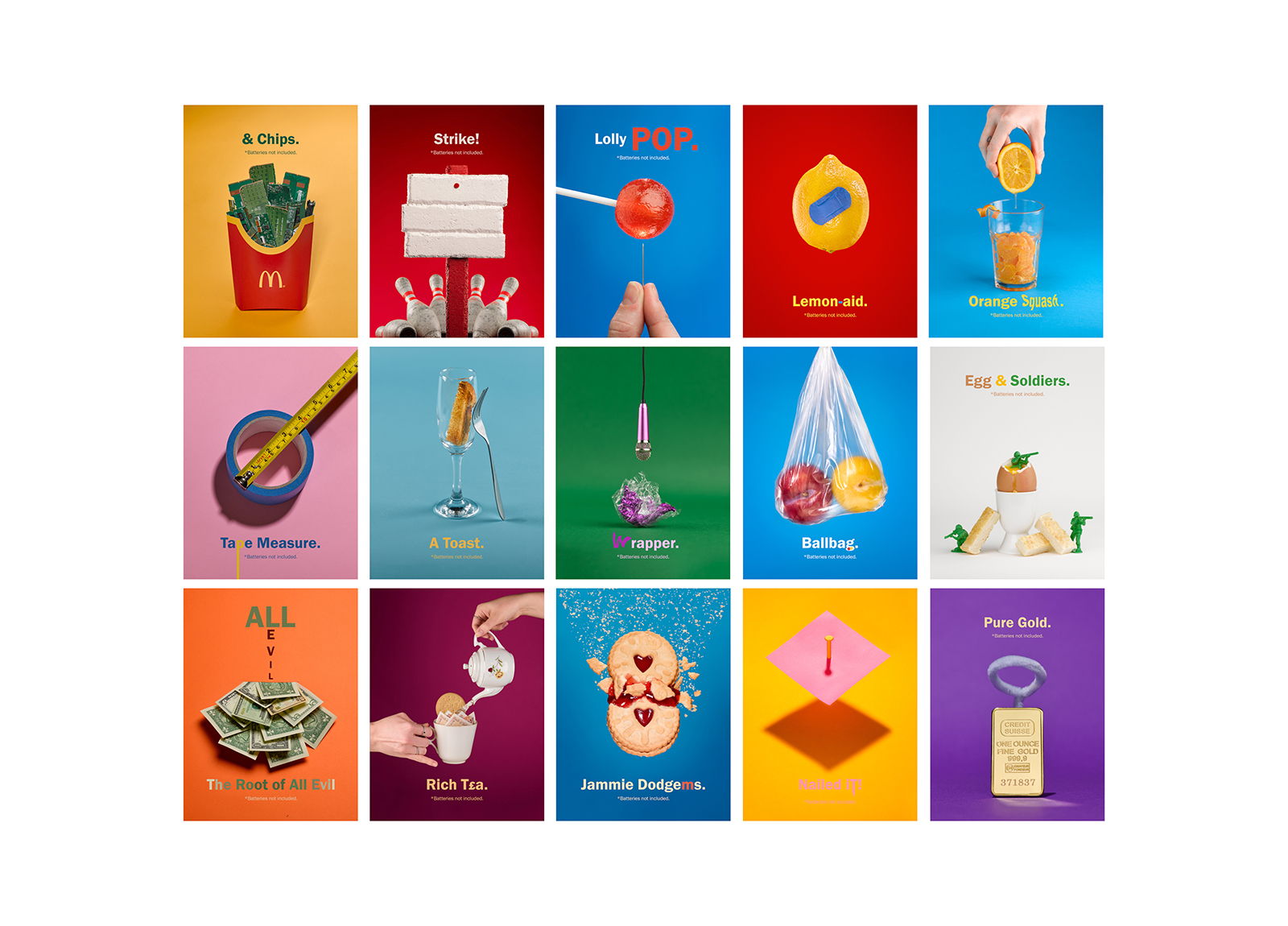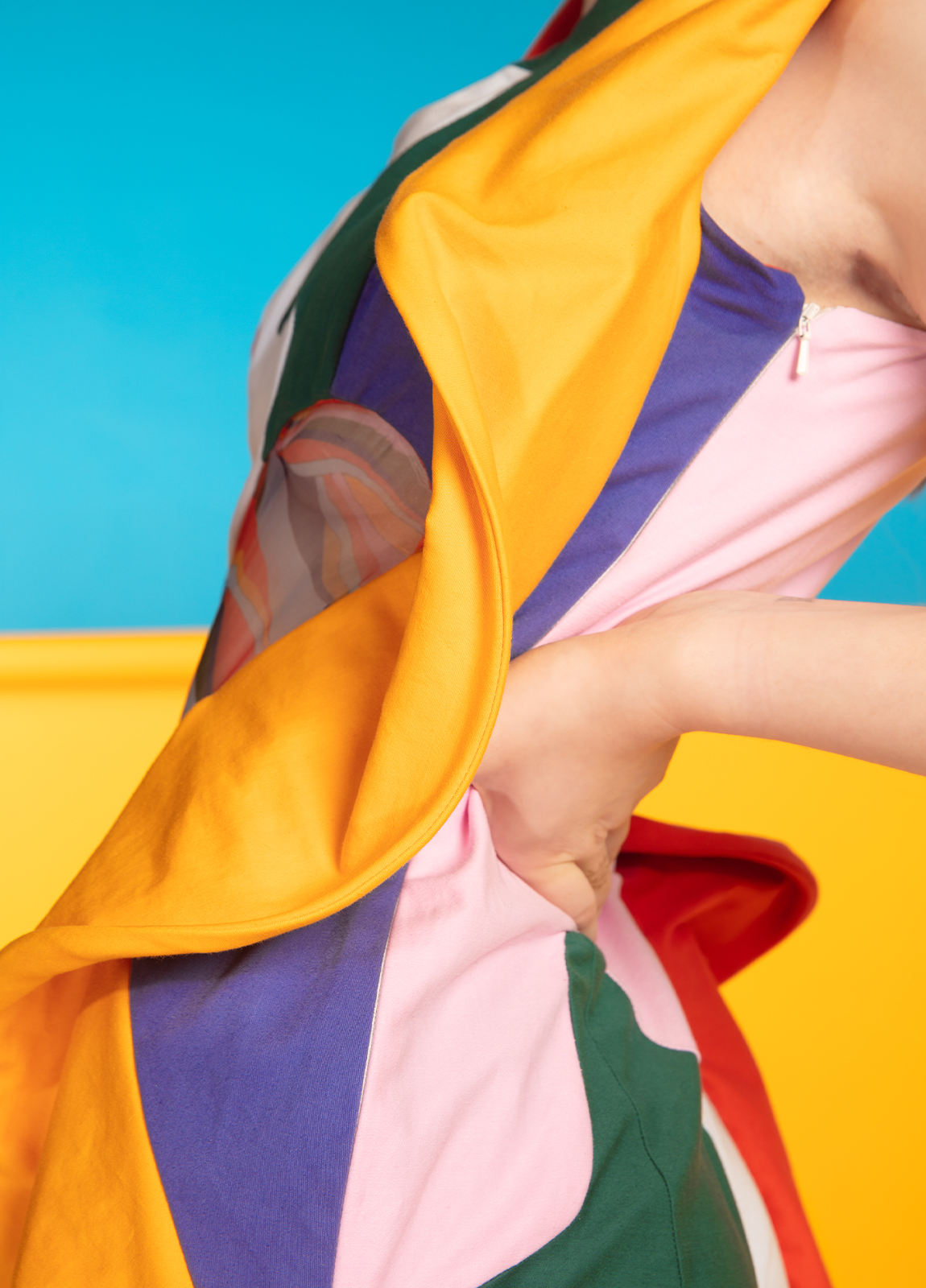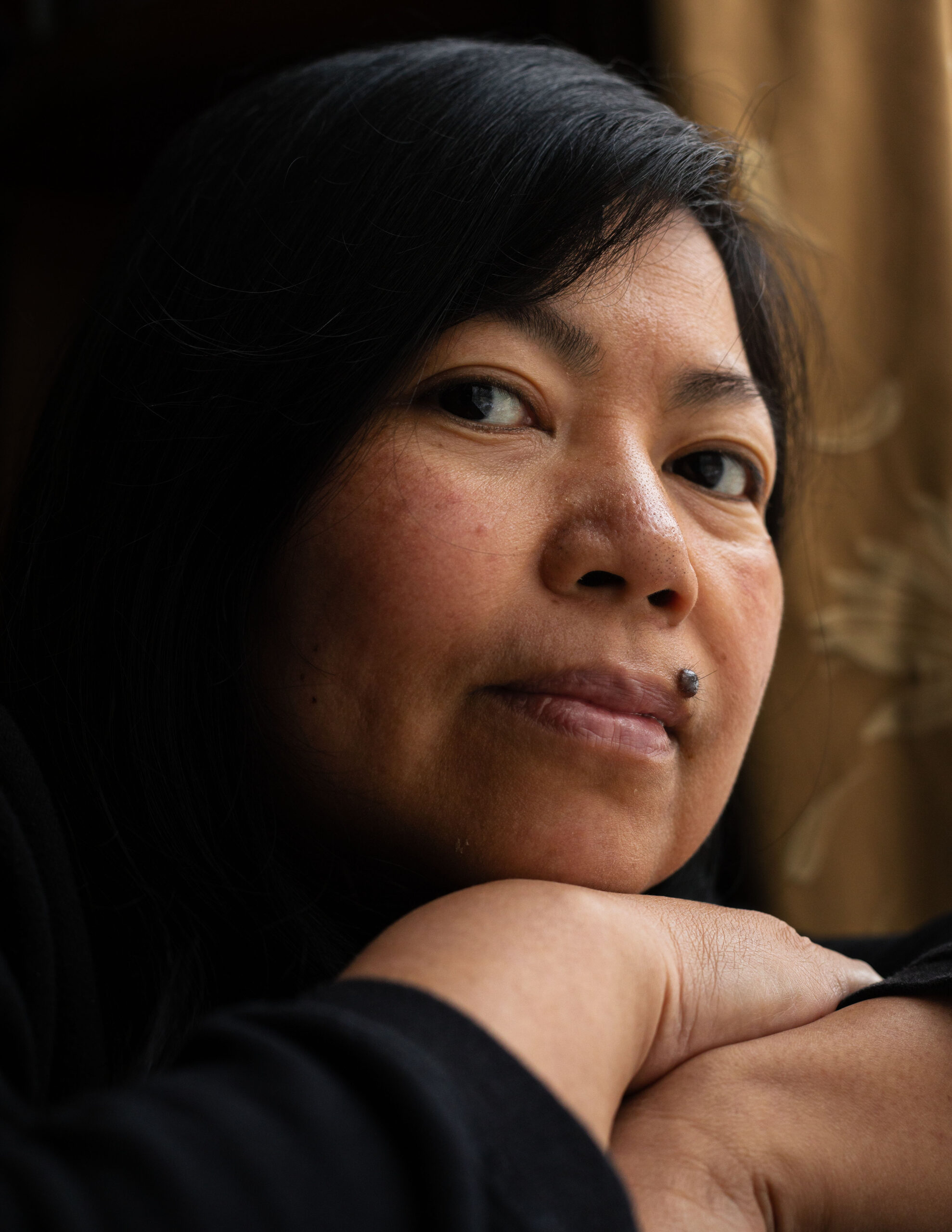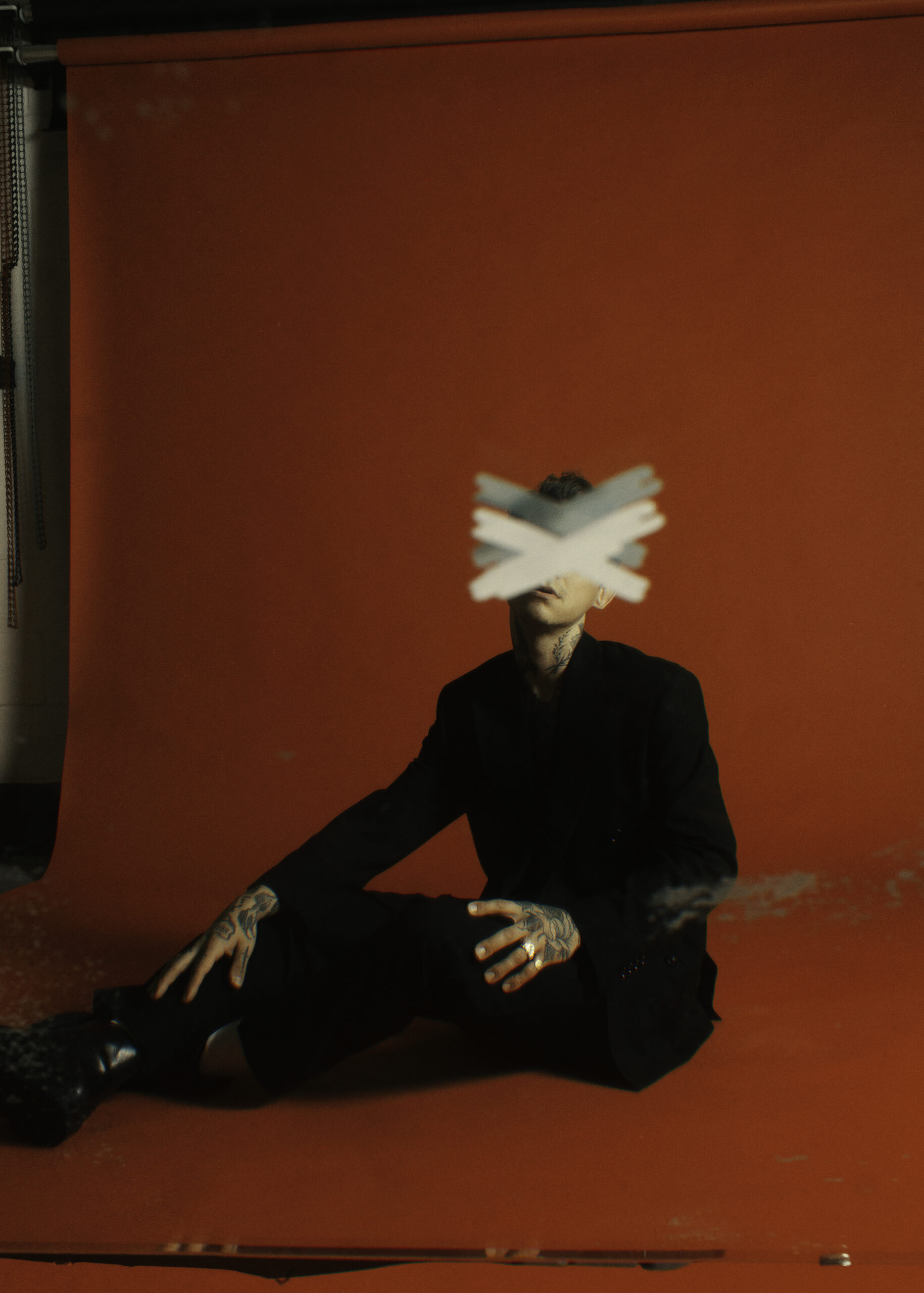

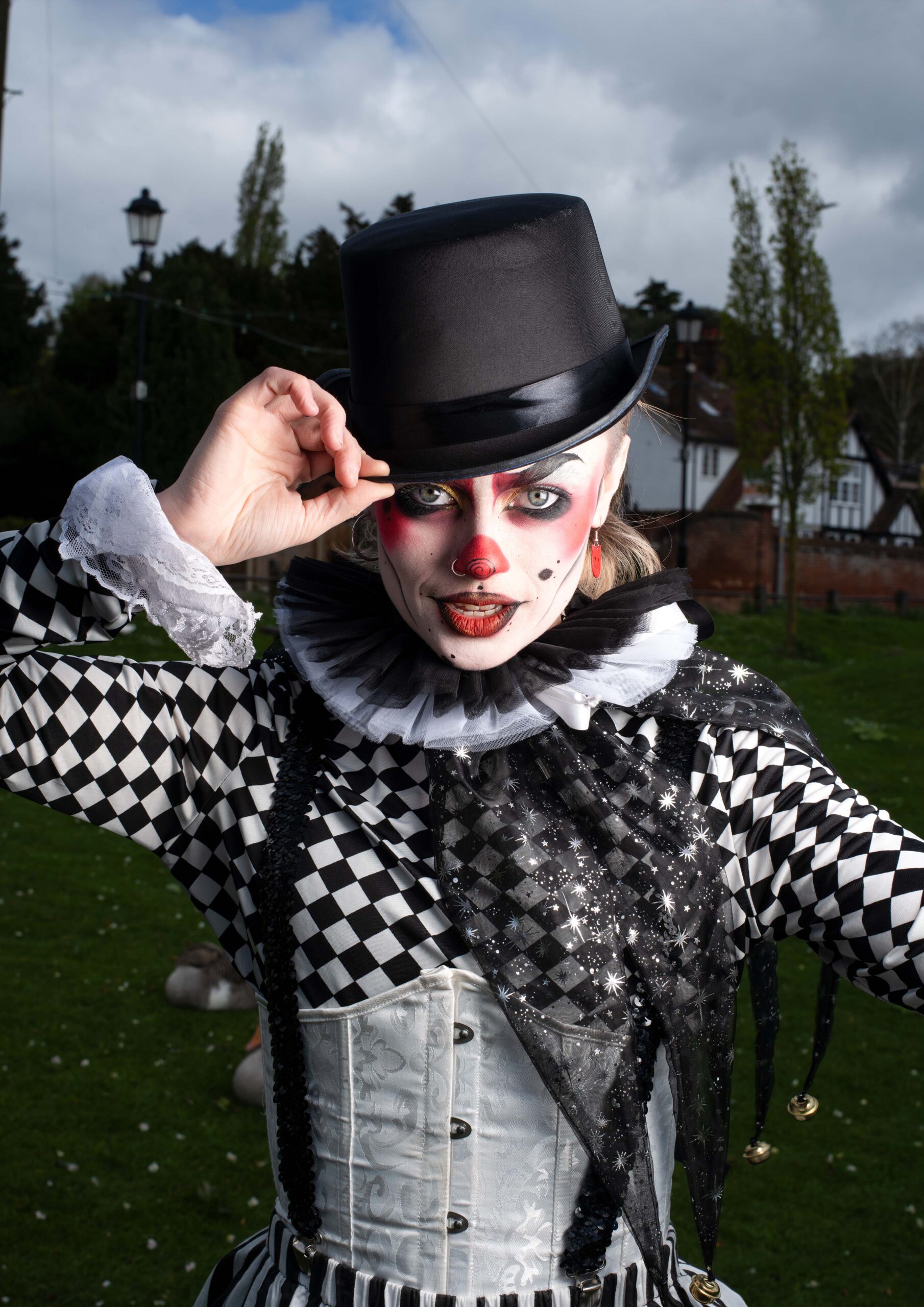
Photography BA (Hons)
Think critically and creatively as you work practically to develop a distinctive portfolio that sets you apart.
-
Course Duration
3 or 4 Year options
-
Course Options
- Diploma Year
- Intergrated Foundation Year
-
Typical Offer
104-120 UCAS Tariff Points
- How to Apply Request a prospectus
-
Annual Fees
- Home (full-time) £9,790
- Overseas (full-time) £18,860
-
UCAS code
- W640 (3 Year), W641 (4 Year)
- Institution code: N39
-
Course Start
September 2026
BA (Hons) Photography focuses on personal practice, technical craft, and an in-depth understanding of photography in a contemporary context. From location and studio lighting to the latest digital imaging techniques, our AOP-accredited course gives you the opportunity to develop diverse and transferable skills in our industry-standard photography studio.
You will learn how to apply your creative vision to a range of industry briefs, from fashion to advertising and editorial photography. You will have access to tools to produce imaginative and original images to the highest standards. Whatever your aspirations, your work will be unmistakable as you emerge as a professional practitioner with a distinctive portfolio.
The course has a progressive learning structure, where you will take increasing responsibility for the content and direction of your work as you advance through the course. We will encourage you to think about client needs and expectations. We want to see you produce stand-out work that could wow creative teams in whatever industry drives your interest.
Accreditation
-

The course is accredited by the Association of Photographers (AOP). Our course meets the AOP’s criteria for the appropriate professional development of students during their studies. This accreditation also offers our students on the course their own free AOP membership for the duration of their studies, providing them with additional support and networking opportunities.
Why study with us
-
Develop your unique approach and vision by exploring ideas, passions and interests.
-
Actively engage with contemporary concerns, informed by historical practices while exploring new and emerging technologies.
-
Explore contemporary techniques related to photographic practice including still and moving image, computer-generated imagery (CGI), animation and illustration.
-
Develop production and post-production skills on location, in our studios and digital darkroom.
-
Access a wide range of industry-level cameras, lighting equipment and large format inkjet printers to produce imaginative and original images to the highest standards.
-
Engage with a wide range of contemporary practitioners and artists, and gain insight from inspirational guest speakers and masterclasses led by renowned professionals like Dean Chalkley, Tim Flach, Sophie Harris-Taylor and Rossella Vanon.
Course Details
Integrated Foundation Year (optional)
Integrated Foundation Year
Our Integrated Foundation Year is designed to equip students with the necessary skills, knowledge and confidence to thrive in their chosen degree subject. The course provides a comprehensive introduction to various disciplines, blending critical thinking and creative problem-solving with practical hands-on experience. This year serves as a bridge to undergraduate studies, allowing students to explore their interests within a supportive and inspiring environment, while familiarising themselves with the campus, workshops, and tutors.
Year 1
Core Units
Creative Learning (40 credits)
In this first year, we will provide you with the foundations of photographic practice. You’ll explore your approach to photographic practice through a range of projects, developing your creative and practical photography skills, and learning the importance of research and how to gather and interpret information. This unit will introduce you to the values of manifesting inspiration, ideas, and concepts, through looking, seeing and doing, engaging the subconscious – using a ‘box’ of images to develop your visual approach. Workshops will introduce you to technical skills, such as fundamental camera techniques, file formats, exposure basics, studio and location lighting, and look at production and post-production understanding in our digital darkroom.
40 credits
Explore and Experiment (80 credits)
In this unit, you will explore and experiment with techniques, materials and media. You’ll continue to expand your use of specialist photographic facilities and equipment. You will continue to explore and develop key contemporary photographic processes and techniques, utilising different professional camera formats and post-production. Through projects and workshops, you will develop and apply a range of thematic, conceptual and practical skills, from sequencing and storytelling to narrative theory. You will explore how creative practice benefits our environment, community, stakeholders, and society, taking a critical view of the relationship between images and the larger contexts within which they operate, and are influenced.
80 credits
Core Projects
Wayfinding Week
The first week of each academic year is called Wayfinding week. It’s an opportunity get your bearings, establish new connections and, after your first year at Norwich, re-establish old ones. Your course team will talk you through the year ahead and explain the expectations for the year. We’ll help you navigate new encounters and identify areas to focus on as you progress through your course.
Make it Manifest(o)
An important element of Wayfinding Week is taking part in our annual ‘Make it Manifest(o)’ project. Your course team will introduce the project in which we’ll ask you to consider your hopes and vision of the year ahead at Norwich and work with students in other year groups to bring your ideas to life. The project culminates in a celebratory display of work across the campus. The project will help you to develop your critical creativity through different approaches, concepts, and mediums. You’ll encounter diverse perspectives and build friendships and networks within our university community.
Interchange Week
Interchange weeks are opportunities to step away from your disciplinary studies and engage in projects, workshops, visits and talks that extend your knowledge and understanding of the world. Whether you learn a new skill or take part in a global challenge project with students from other courses, you will come away with new insights to take back to your course. Interchange is part of the schedule for all Norwich students with sessions held across and beyond the campus led by university staff, visiting lecturers and students.
Year 2
Core Units
Global Concepts (80 credits)
This unit will enable you to expand your specialist knowledge and explore the application of your creative practice within professional contexts, including fashion, advertising, and editorial projects. The unit will explore how photography expands into other forms of making, utilising new and emerging technologies, like moving images, sound, CGI, and post-production. You will consider how visual work is created in relation to theories of site and location, and how the meaning of your practical work may change depending on the context in which it is placed. This unit also places emphasis on contemporary photographic issues and practices and builds on your developing understanding of historical and theoretical photographic knowledge.
80 credits
Collaboration (40 credits)
This unit will introduce you to how collaborative working can help you focus and enhance your creative strengths, working with fellow students and our creative communities. This collective learning experience will expose you to a range of new processes and approaches that will develop your creative thinking. Lectures and workshops will expand your knowledge, including industry collaboration, effective teamwork, communication, expectation, and mediation. You’ll develop your professional practice and an awareness of a variety of roles within the photographic and creative industries. You’ll be guided in preparing a variety of visual and written materials relating to your professional aspirations, including workshops on professional pitches, presentations, social media and networking.
40 credits
Core Projects
Wayfinding Week
The first week of each academic year is called Wayfinding week. It’s an opportunity get your bearings, establish new connections and, after your first year at Norwich, re-establish old ones. Your course team will talk you through the year ahead and explain the expectations for the year. We’ll help you navigate new encounters and identify areas to focus on as you progress through your course.
Make it Manifest(o)
An important element of Wayfinding Week is taking part in our annual ‘Make it Manifest(o)’ project. Your course team will introduce the project in which we’ll ask you to consider your hopes and vision of the year ahead at Norwich and work with students in other year groups to bring your ideas to life. The project culminates in a celebratory display of work across the campus. The project will help you to develop your critical creativity through different approaches, concepts, and mediums. You’ll encounter diverse perspectives and build friendships and networks within our university community.
Interchange Week
Interchange weeks are opportunities to step away from your disciplinary studies and engage in projects, workshops, visits and talks that extend your knowledge and understanding of the world. Whether you learn a new skill or take part in a global challenge project with students from other courses, you will come away with new insights to take back to your course. Interchange is part of the schedule for all Norwich students with sessions held across and beyond the campus led by university staff, visiting lecturers and students.
Diploma Year (optional)
Level 5 Diploma (120 credits)
Students have the opportunity to spend a year after the second of their degree (or the third year if studying for a degree with an Integrated Foundation Year) enhancing their employability options through a Level 5 Diploma. They can choose from courses designed to provide:
- opportunities to gain industry insight, developing employability skills through a series of supported experiences, expanding professional networks and building confidence in the workplace, or
- an introduction to creative computing, building an understanding of how coding skills can be used to advance and complement creative practice.
Final Year
Core Units
Research and Preparation (40 credits)
This is the first, and shorter, of the two units that make up your final year of study. Your final year allows you to refine your existing creative practice, develop your skills, and reflect upon your experience with opportunities to engage with live projects, visiting speakers, competitions, and professional bodies, to broaden your portfolio and strategically enhance career directions. The unit encourages innovation through an experimental, process-driven approach, identifying means of production relevant to your creative intentions using current and emerging technologies. You’ll develop and undertake critical research within an area of creative practice that advances your knowledge of contemporary practice, contextual issues, cultural theories and debates. Group and individual tutorials will provide stimulating and supportive sessions to help you develop your research ideas and that of others.
40 credits
Resolution and Career Development (80 credits)
This unit will allow you to deliver a final major project embracing the entire design process, developing your understanding of the key theories and concepts. You will develop your creative practice by exploring themes, subjects and approaches that you are passionate about. Alongside this, you will develop an understanding of the application of your practice within professional contexts, including a career development plan. Visiting speakers will cover key areas of practice and production relating to the relationship between personal practice and applied practice within the photographic industries. You will participate in an industry critique which will help develop your work as you progress through the final part of your degree. At the end of the year, you’ll have a comprehensive body of work that represents your unique perspective as a creative practitioner. You’ll have the opportunity participate in our degree show, Grad Fest, and in a London graduate showcase, connecting you with industry professionals and potential employers.
80 credits
Core Projects
Wayfinding Week
The first week of each academic year is called Wayfinding week. It’s an opportunity get your bearings, establish new connections and, after your first year at Norwich, re-establish old ones. Your course team will talk you through the year ahead and explain the expectations for the year. We’ll help you navigate new encounters and identify areas to focus on as you progress through your course.
Make it Manifest(o)
An important element of Wayfinding Week is taking part in our annual ‘Make it Manifest(o)’ project. Your course team will introduce the project in which we’ll ask you to consider your hopes and vision of the year ahead at Norwich and work with students in other year groups to bring your ideas to life. The project culminates in a celebratory display of work across the campus. The project will help you to develop your critical creativity through different approaches, concepts, and mediums. You’ll encounter diverse perspectives and build friendships and networks within our university community.
Interchange Week
Interchange weeks are opportunities to step away from your disciplinary studies and engage in projects, workshops, visits and talks that extend your knowledge and understanding of the world. Whether you learn a new skill or take part in a global challenge project with students from other courses, you will come away with new insights to take back to your course. Interchange is part of the schedule for all Norwich students with sessions held across and beyond the campus led by university staff, visiting lecturers and students.
Download course specifications
Learning and teaching
This course is taught through a mixture of learning and teaching methods including:
-
Group briefings
-
Academic tutorials
-
Group tutorials
-
Workshops
-
Critiques (crits)
-
Seminars
-
Lectures
Assessment
Assessment for this course is entirely coursework-based, meaning there are no exams. Your progress will be evaluated through the projects and assignments you complete for each unit. Throughout the year, you’ll receive ongoing feedback to help you refine your work and develop your skills. To support your learning and ensure you achieve the course outcomes, we use a variety of assessment methods, including:
- Finished pieces of work
- Presentations
- Written work
- Your research
- A reflective journal
Some of the people you’ll be working with
Our Facilities
Look around our city-centre campus, and you will find studios, media labs, and creative spaces in 13 buildings that sit among the cafés, bars, independent galleries and shops of Norwich’s cultural quarter.
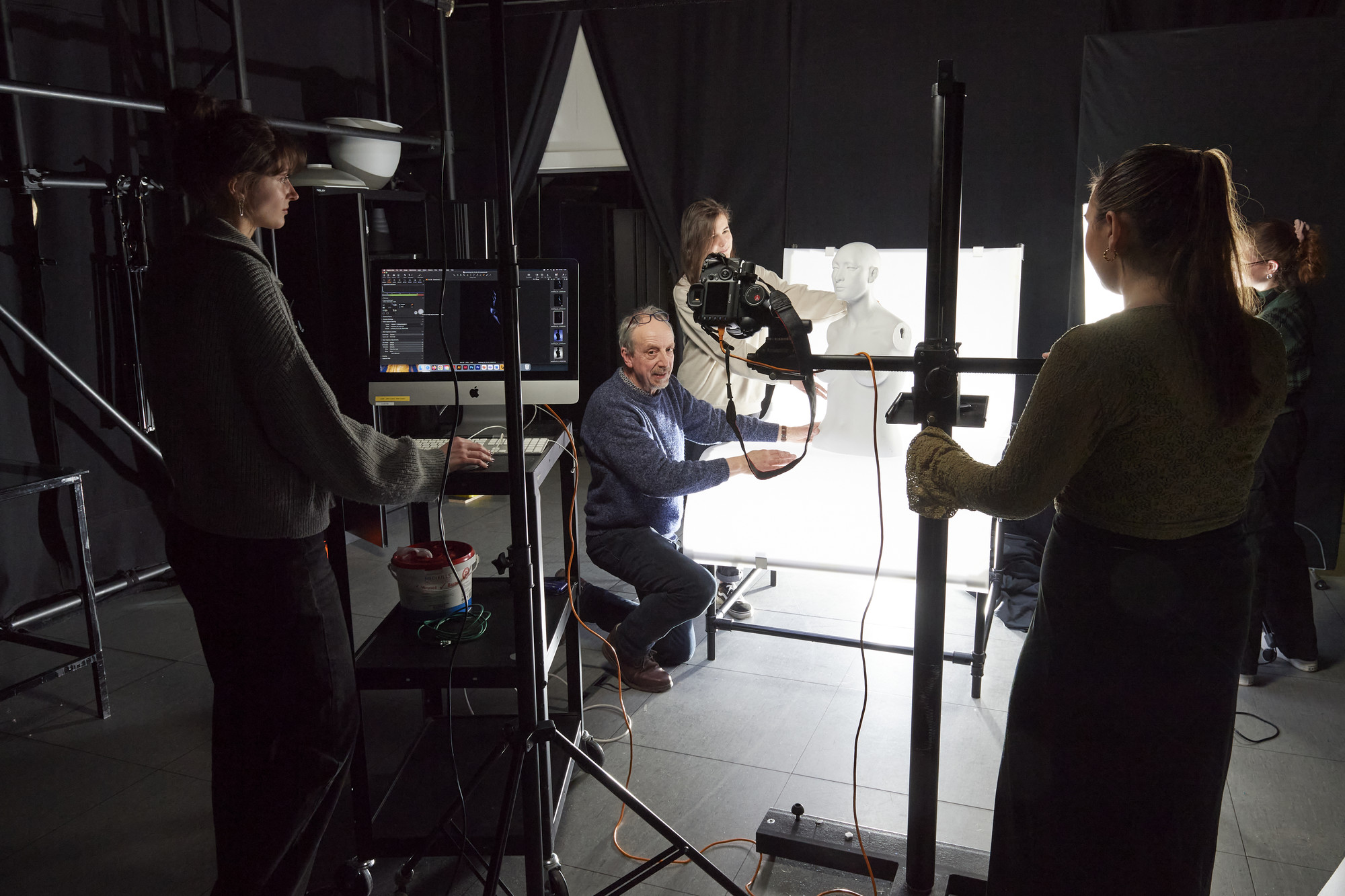
Typical career paths
Industry engagement and employability are supported throughout the course, to help you understand how to apply your personal practice in a professional context.
Our graduates have found employment in a range of different roles in the creative industries. Within the course structure many students begin assisting alongside their studies. Students have received awards from the AOP, D&AD, Eizo, Canon, British Journal of Photography, Lens Culture Portrait Awards, PhotoNorth and Portrait of Britain.
Graduates may become photographers or artists in their own right immediately after completing their course. Many photographers and artists work on a freelance basis, supported internally by our Business and Employability team.
- Photographer
- Photographic assistant
- Digital assistant
- Studio assistant
- Curator
- Art director
- Producer
- Image producer
- Picture editor
- Digital retoucher
- CGI artist
- Teaching technician
- Picture librarian
- Photographer’s agent
- Picture researcher
- Fine Art Practitioner
“92% of our graduates are in employment or further education within six months of graduating”
Graduate Outcomes 2021
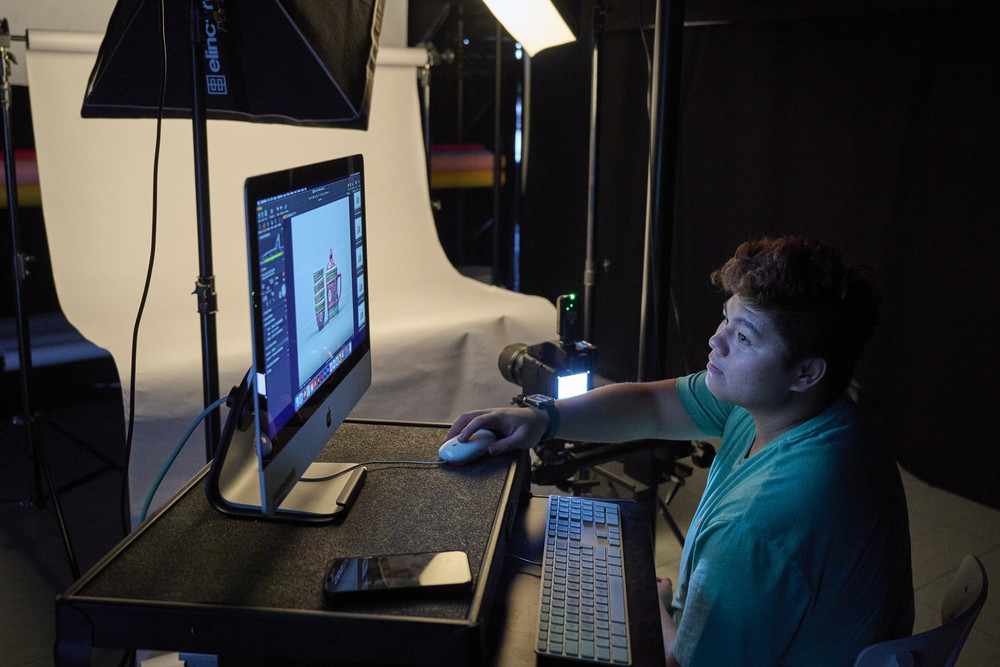
Fees and funding
Home
Tuition fees for the 2026/27 academic year
- BA course (three year): £9,790 per year
- Integrated Foundation Year (optional): £9,790 per year
- Level 5 Diploma Year (optional): £9,790 year
The level of fee that you will be asked to pay depends on whether you’re classed as a UK (home) or international student. Check your fee status.
Fees for subsequent years
Tuition fees may increase in subsequent years in line with inflation, subject to government regulations. The inflation rate used is expected to be the Retail Price Index excluding mortgage payments (RPIX). We would confirm this in advance to you of each academic year.
Find our more about fees and funding
Funding your study
Depending on your circumstances, you may qualify for a bursary, scholarship or loan to help fund your study and enhance your learning experience.
International
Tuition fees for the 2026/27 academic year
- BA course (three year): £18,860
- Integrated Foundation Year (optional): £18,860
- level 5 Diploma year (optional): £18,860
The level of fee that you will be asked to pay depends on whether you’re classed as a UK (home) or international student. Check your fee status.
Fees for subsequent years
For Overseas students starting in 2026 inflation will be applied to your fees in later years. We will confirm this in advance to you of each academic year, and we will limit the increase to no more than the Office for Students’ recommended inflationary measure.
Find our more about fees and funding
Funding your study
Please take a look at our International students page for information about fees, scholarships for international students, visas and much more.
Additional costs
Your course fees cover the cost of studies, and include loads of benefits, such as the use of our library, support from our expert employability team, access to workshops and free use of the IT equipment across our campuses. There are also other costs which you may need to consider.
How to apply
Home
All applications for undergraduate courses will need to be made via the Universities and Colleges Admissions Service (UCAS).
You’ll need our university UCAS code (N39) as well as your course code which you’ll find on your course page.
When you register with UCAS you will need include your previous and current qualifications information, personal statement, and reference.
Once we receive your application form through UCAS, we will email confirmation that we have received it and will give you access and instructions for logging into the applicant portal. Our decision will be communicated via UCAS.
Applying for an undergraduate degreeInternational
Full-time Undergraduate International applicants can either apply via UCAS or directly by completing the online application form below or emailing the downloadable form to ioadmissions@norwichuni.ac.uk
Online Application Form (opens in a new window)For further support for international applicants applying for an undergraduate degree view our international pages.
-
Joe Rolph
Photography BA (Hons)
Adam Billings
Photography BA (Hons)
Ruby Williams
Photography BA (Hons)
Steven Spicer
Photography BA (Hons)
Mary Garcia
Photography BA (Hons)

Latest news
-
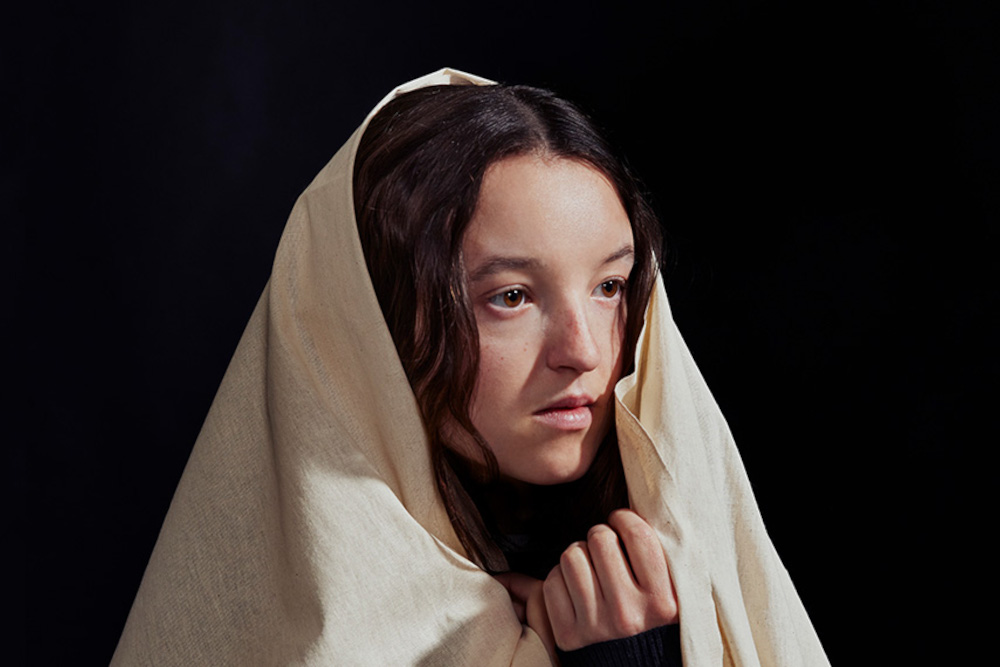 BA Photography •
BA Photography •Entries open for Norwich's 2026 Beyond the Frame photography competition
Entries are now open for our annual photography competition, open to students aged 11 to 19 around the world. -
 BA Photography •
BA Photography •Beyond the Frame photography competition 2025
Norwich University of the Arts’ Beyond the Frame competition is back for its eighth year. -
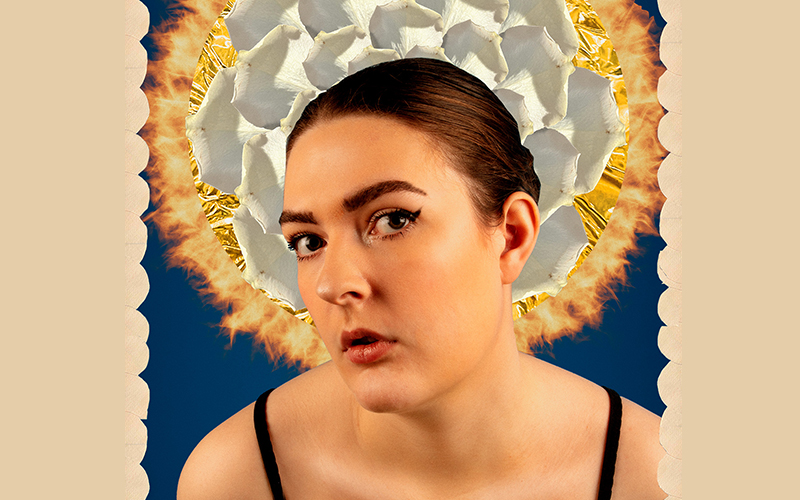 BA Photography •
BA Photography •Claudy Woods: London photography portfolio crit
Photography student Claudy Woods tells us about her experience attending the Year 3 portfolio crit. -
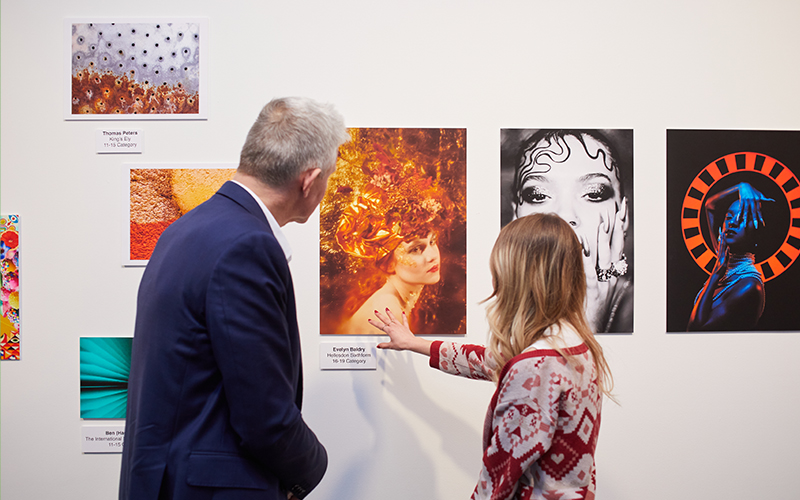 BA Photography •
BA Photography •Beyond the Frame 2024 winners announced
Norwich University of the Arts' photography competition invited students aged 11-19 worldwide. -
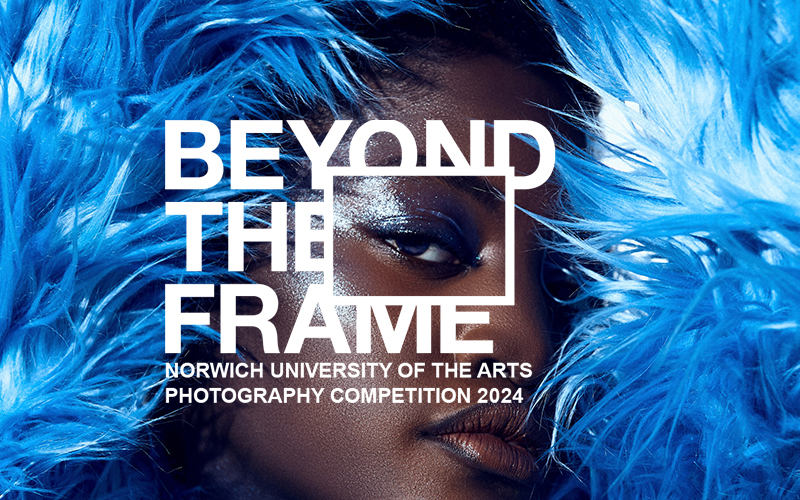 BA Photography •
BA Photography •Beyond the Frame photography competition 2024
Norwich University of the Arts’ Beyond the Frame competition is back for its seventh year. -
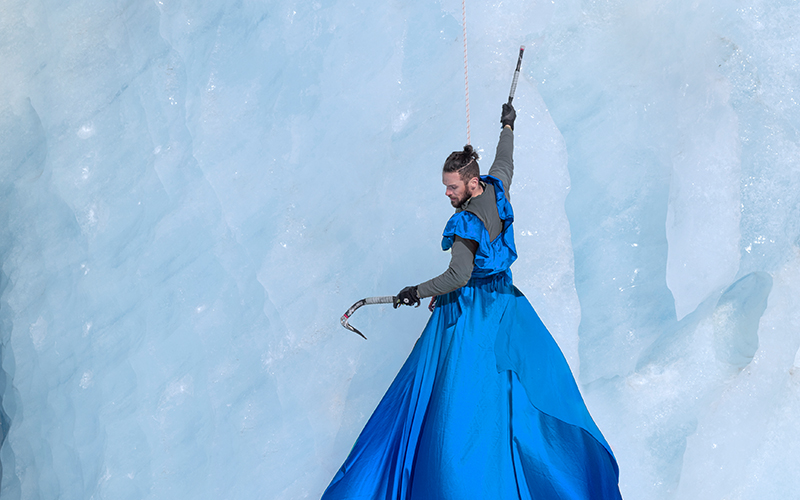 Alumni •
Alumni •Cat Gundry-Beck Finalist in AOP Open Award
BA (Hons) Photography graduate's photograph 'The Ice Climber' selected for AOP Award. -
 BA Acting •
BA Acting •Take a look back at Norwich University of the Arts Graduation 2023
Explore photos and memories from our two-day graduation celebrations in this photo blog. -
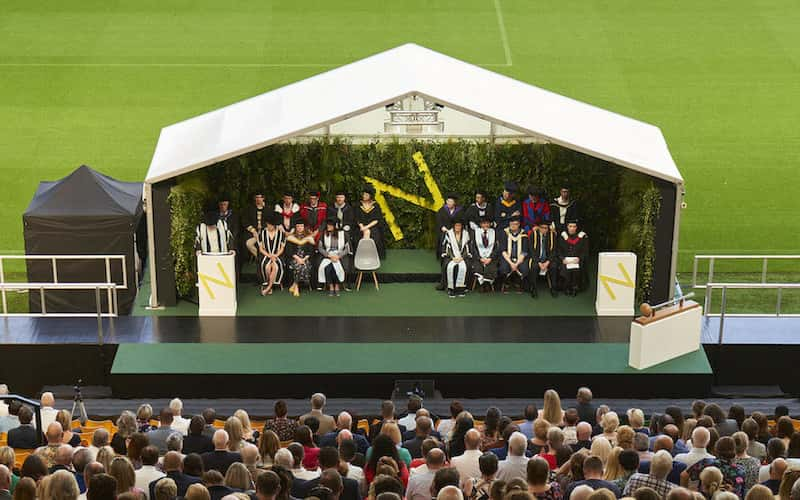 BA Acting •
BA Acting •Distinguished artists and visionaries to receive Honorary Professorships
Five distinguished figures to be made Honorary Professors by Norwich University of the Arts -
BA Photography •
Joey Rolph: London photography portfolio crit
Photography student Joey Rolph tells us about his experience attending the Year 3 portfolio crit -
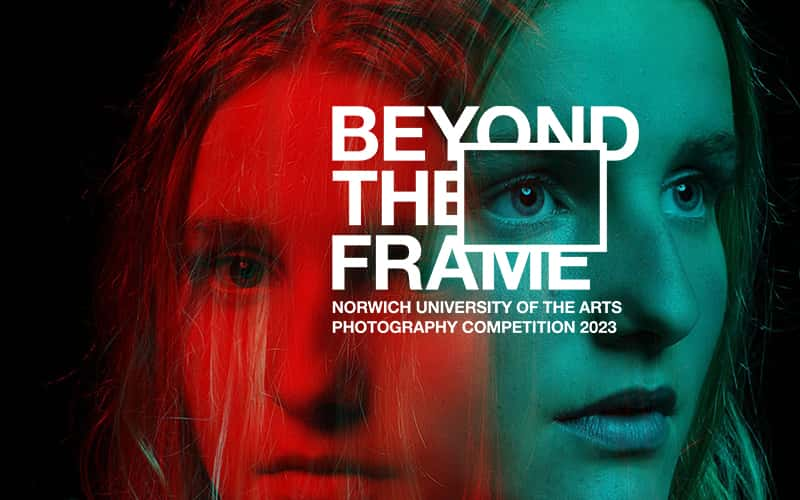 BA Photography •
BA Photography •Beyond the Frame 2023 winners announced
Norwich University of the Arts' photography competition invited students aged 11-19 worldwide. -
 BA Photography •
BA Photography •Beyond the Frame photography competition 2023
Norwich University of the Arts’ Beyond the Frame competition is back for its sixth year. -
 Alumni •
Alumni •Alumni shortlisted in prestigious British Photography awards
Hannah Taylor-Eddington has been shortlisted in the Food and Drink category in this year's awards. -
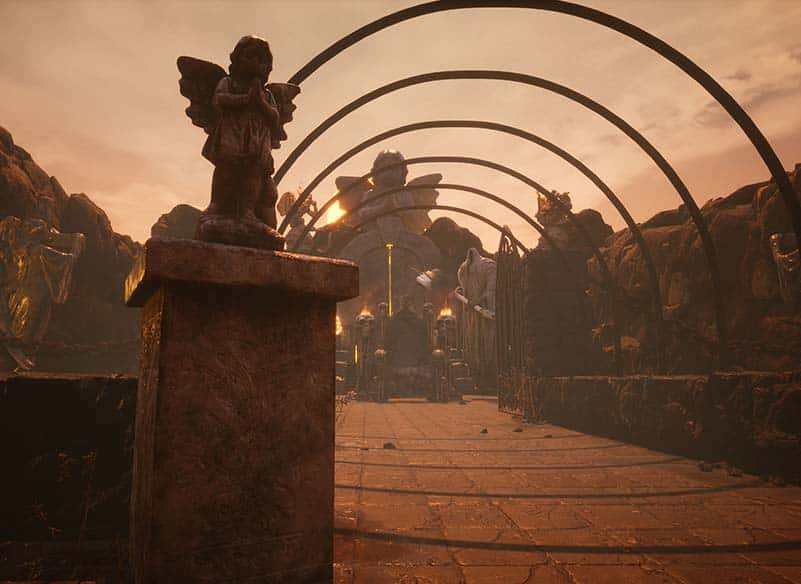 Alumni •
Alumni •Ten graduates shortlisted in GUCCI Global Design Graduate Show
Graduates' portfolios across our creative media courses have been shortlisted in a global showcase. -
 BA Design for Publishing •
BA Design for Publishing •Graduates featured in global D&AD New Blood Portfolios
7 Norwich graduates selected to showcase their work in the esteemed D&AD New Blood: The Portfolios. -
 BA Photography •
BA Photography •Student works as AI Artist on Kasabian music video
Third-year Kieran Cook has worked on rock band Kasabian's new music video SCRIPTVRE -
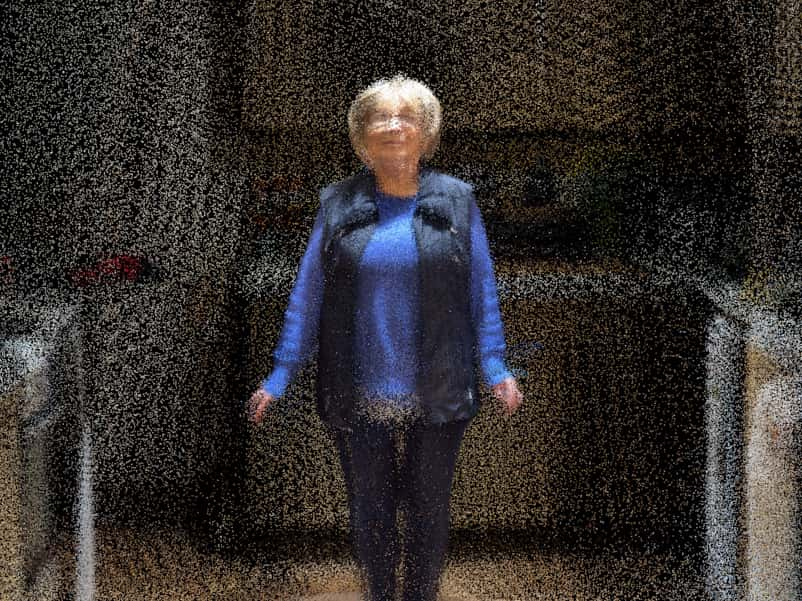 BA Photography •
BA Photography •BA (Hons) Photography student selected for the Canon Student Development Programme
Third-year student Jason Stirland has been selected by industry professionals for the programme.
Related courses
Discover our courses and take the first step towards unleashing your potential
-
Visit the Fashion Communication and Promotion BA (Hons) course page
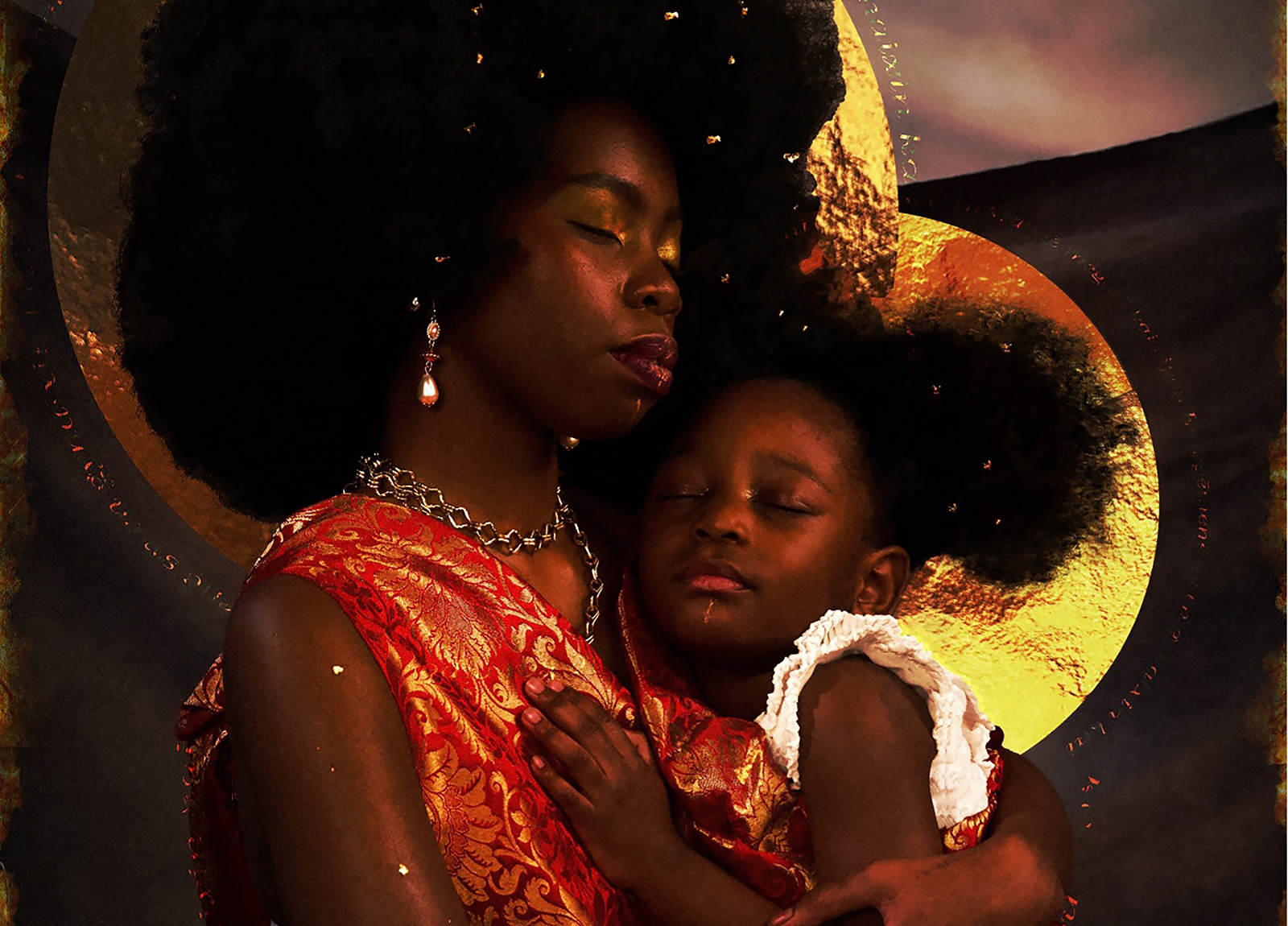
- Filter courses by study level: Undergraduate
- Filter courses by duration: Full time
- Filter courses by start month: September
- Filter courses by subject: Fashion Communication and Promotion
Fashion Communication and Promotion BA (Hons)
Create original content and eye-catching campaigns that mirror the marketing strategies and visual communication skills driving the global fashion industry.
-
Visit the Film and Moving Image Production BA (Hons) course page
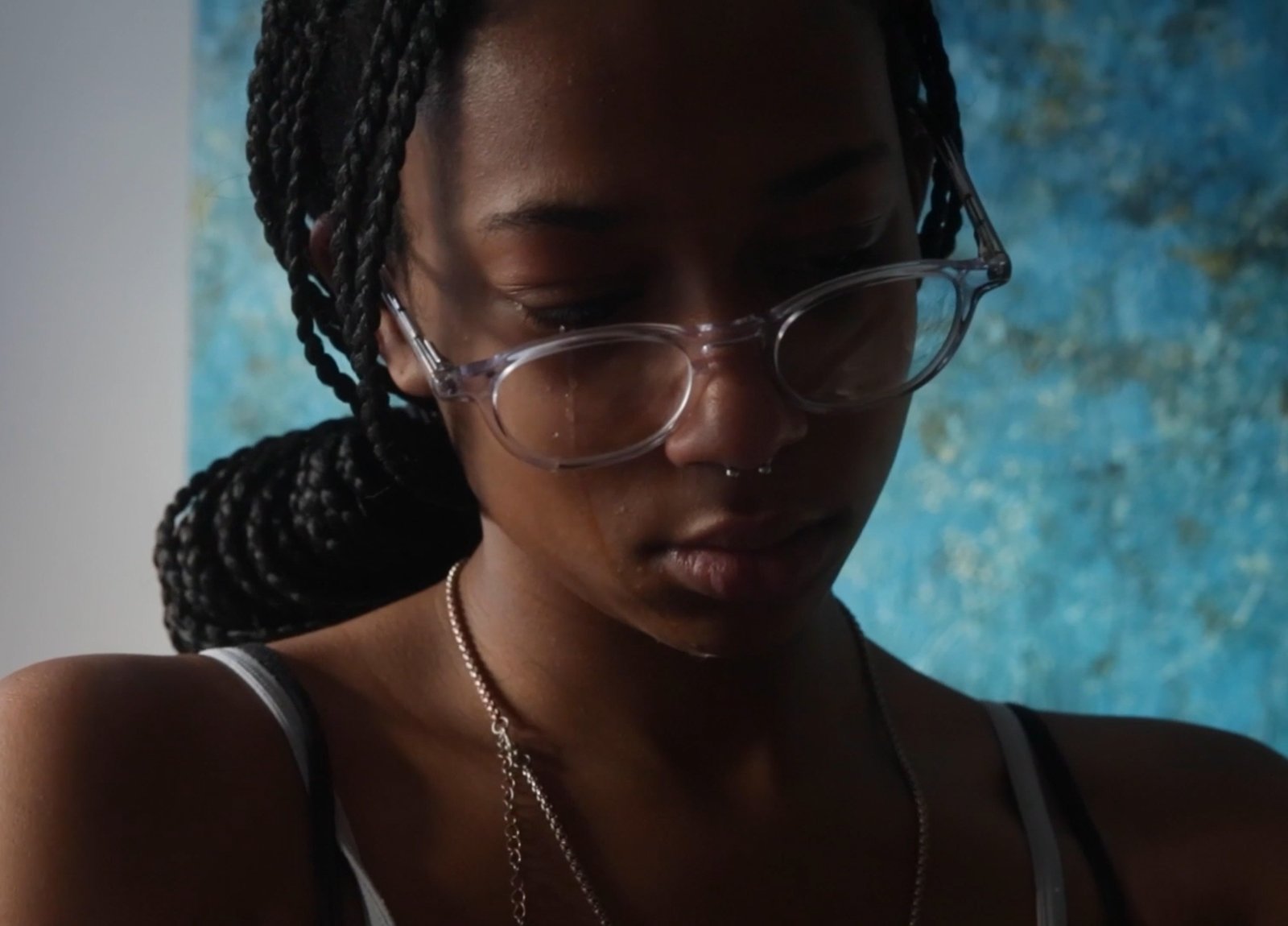
- Filter courses by study level: Undergraduate
- Filter courses by duration: Full time
- Filter courses by start month: September
- Filter courses by subject: Film and Moving Image Production
Film and Moving Image Production BA (Hons)
Unleash your artistic vision by combining the art of creative storytelling with practical industry skills across various filmmaking mediums.
-
Visit the Graphic Communication BA (Hons) course page
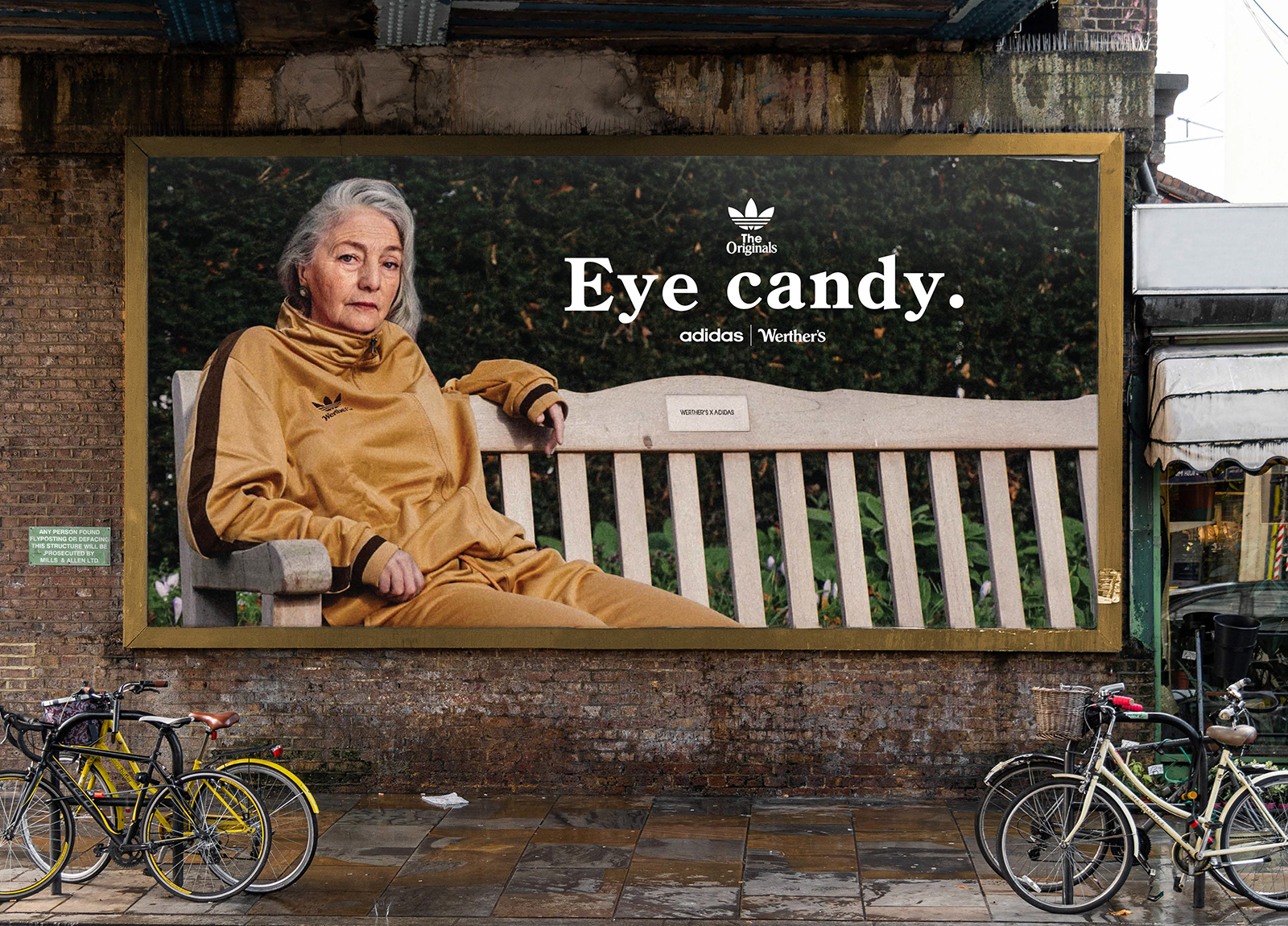
- Filter courses by study level: Undergraduate
- Filter courses by duration: Full time
- Filter courses by start month: September
- Filter courses by subject: Graphic Communication
Graphic Communication BA (Hons)
Ignite your passion for exploring visual ideas and brand communication from real-world problems to commercial briefs, across print and digital.
-
Visit the Graphic Design BA (Hons) course page
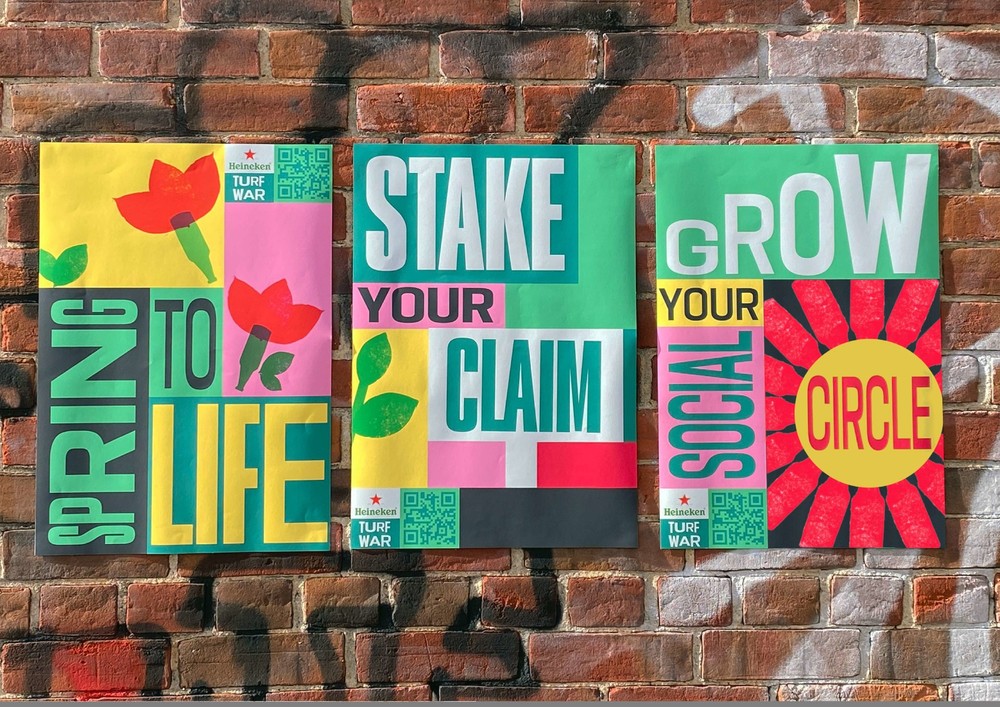
- Filter courses by study level: Undergraduate
- Filter courses by duration: Full time
- Filter courses by start month: September
- Filter courses by subject: Graphic Design
Graphic Design BA (Hons)
Be inspired to apply innovative and creative solutions to branding, packaging, and promotional design for commercial markets.
-
